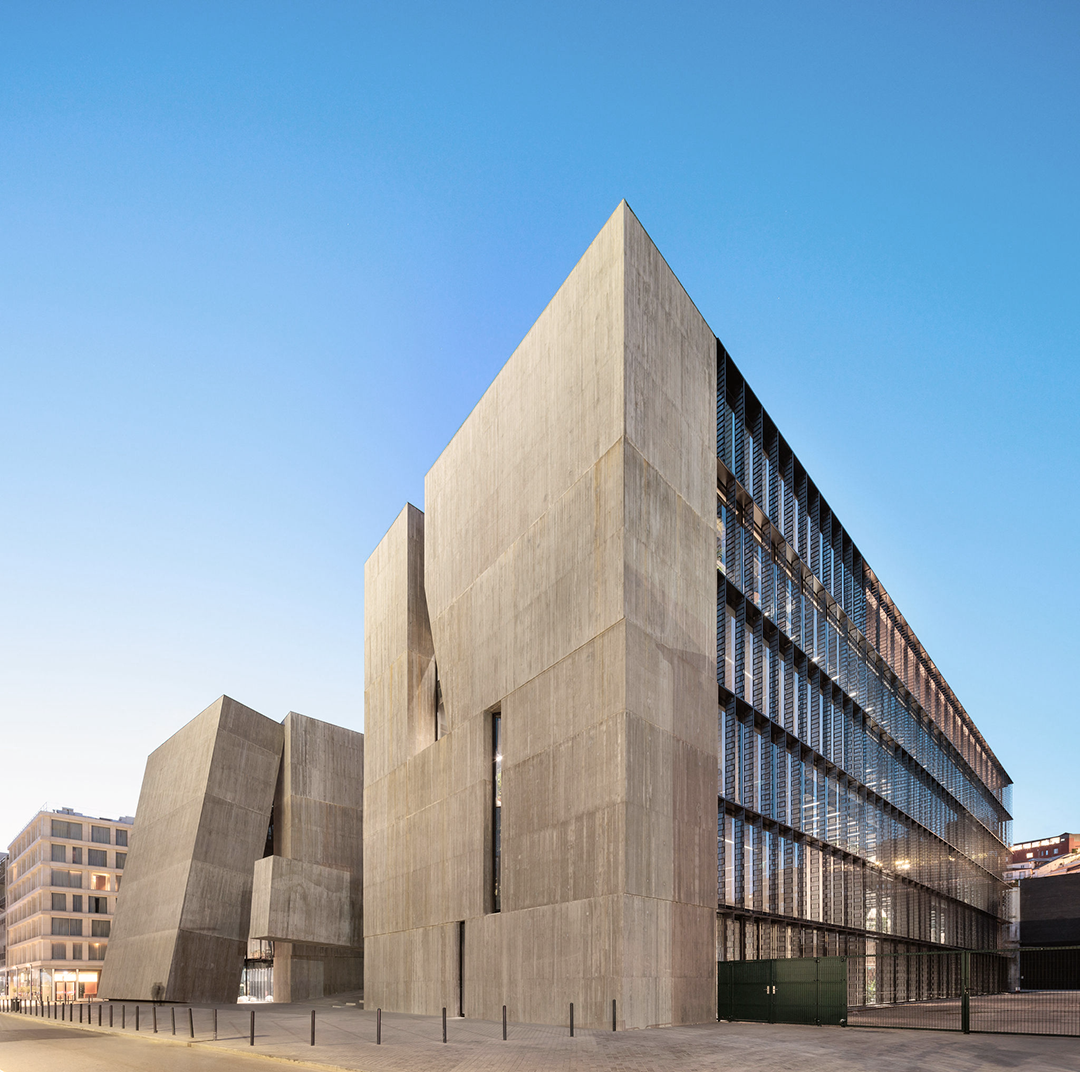

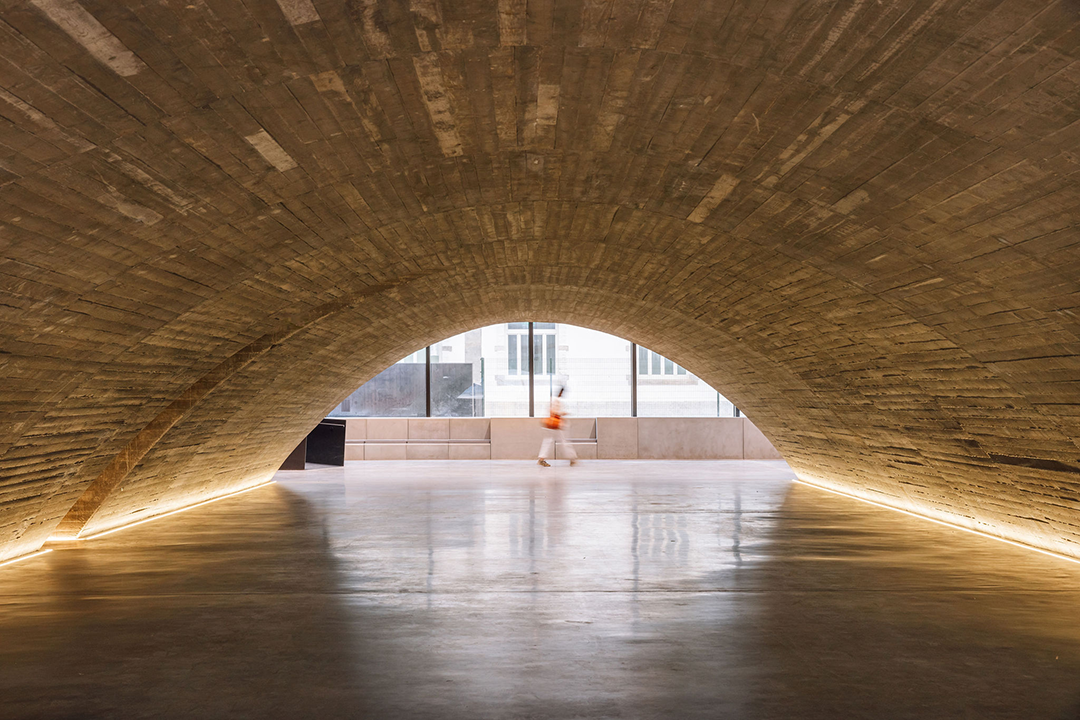
设计单位 ELEMENTAL
项目地址 葡萄牙里斯本
建成时间 2024年
建筑面积 10950平方米
本文英文原文由ELEMENTAL提供,由有方编译。
这个项目需要解决一个矛盾问题,即两个相反的力量:一方面,它需要遵循总体规划的要求,保持山丘与河流之间(南北方向)公共空间的连续性,因而建筑体量被分割为两个线性体块;另一方面,建筑又需要作为一个整体运作,因此这两个线性体块必须在东西方向上连接,但这又可能破坏公共空间在南北方向的连续性。
This project had to solve a kind of paradox, two forces pulling in opposite directions: on the one hand it had to comply with a Masterplan that required a continuity of the public space from the hills to the river (north-south direction) resulting in a splitting of the building’s mass into two linear volumes. On the other hand, the building had to be able to function as one single entity; so the 2 linear volumes had to be connected in the east-west direction, threatening the north-south continuity of the public space.
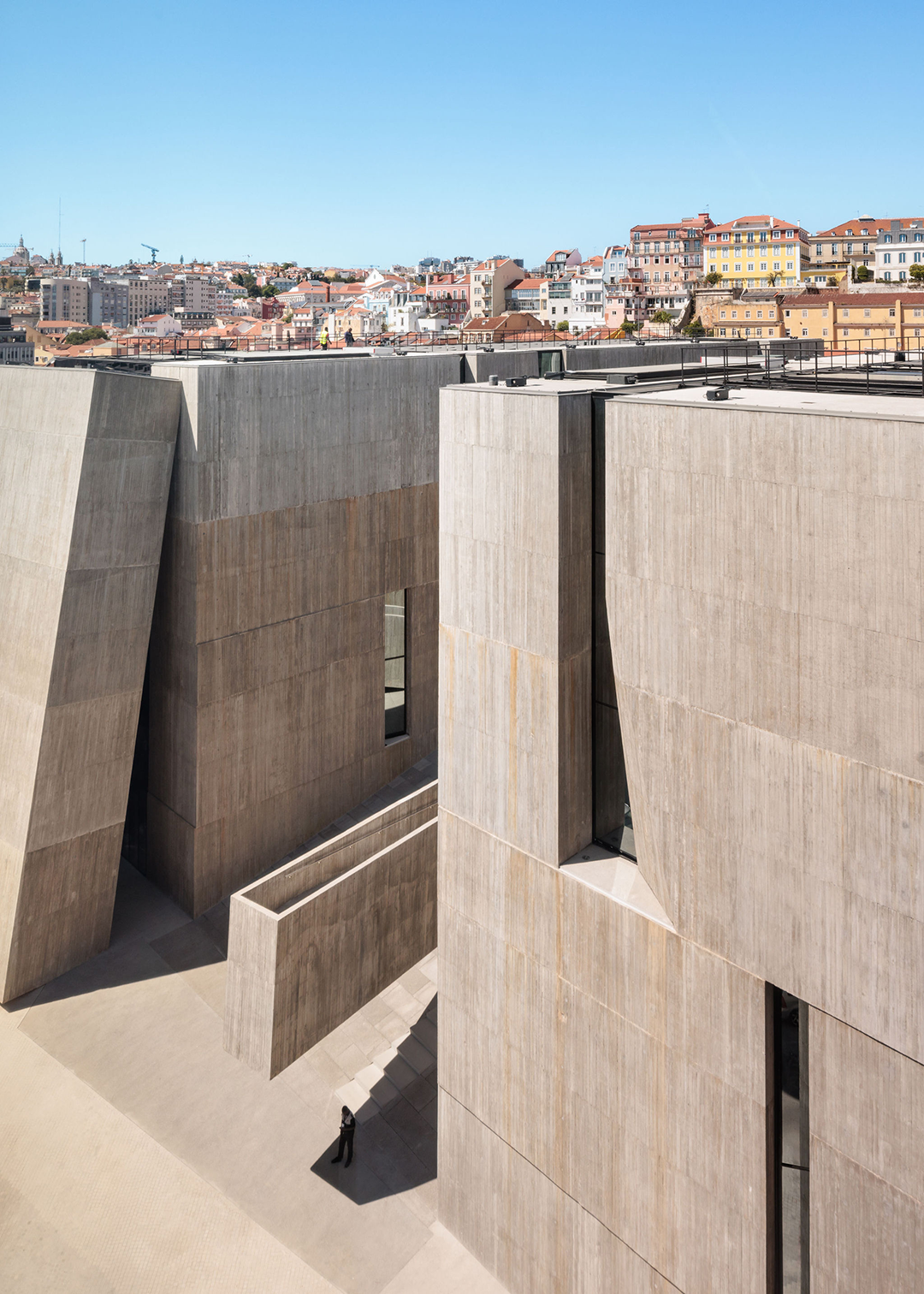
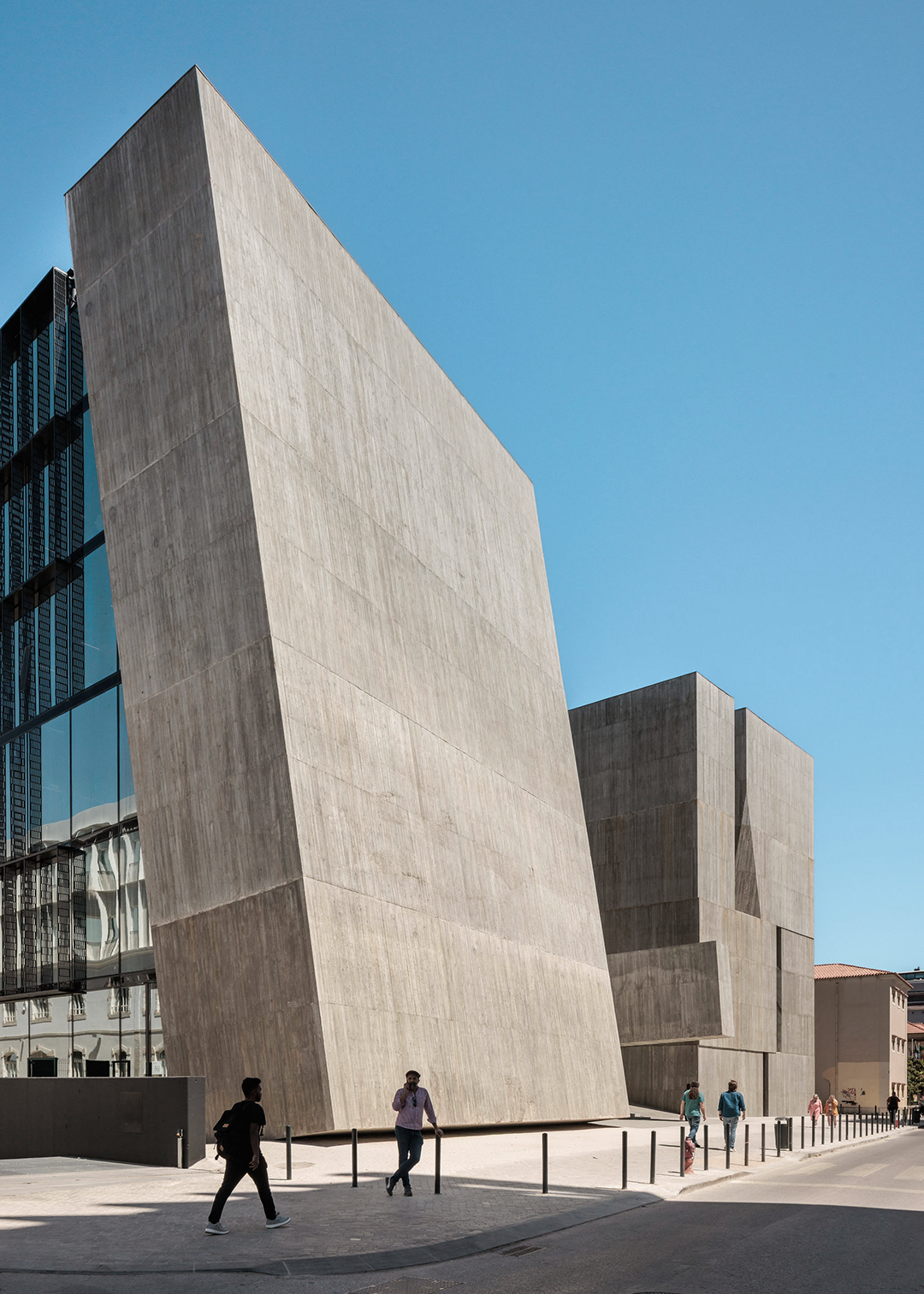
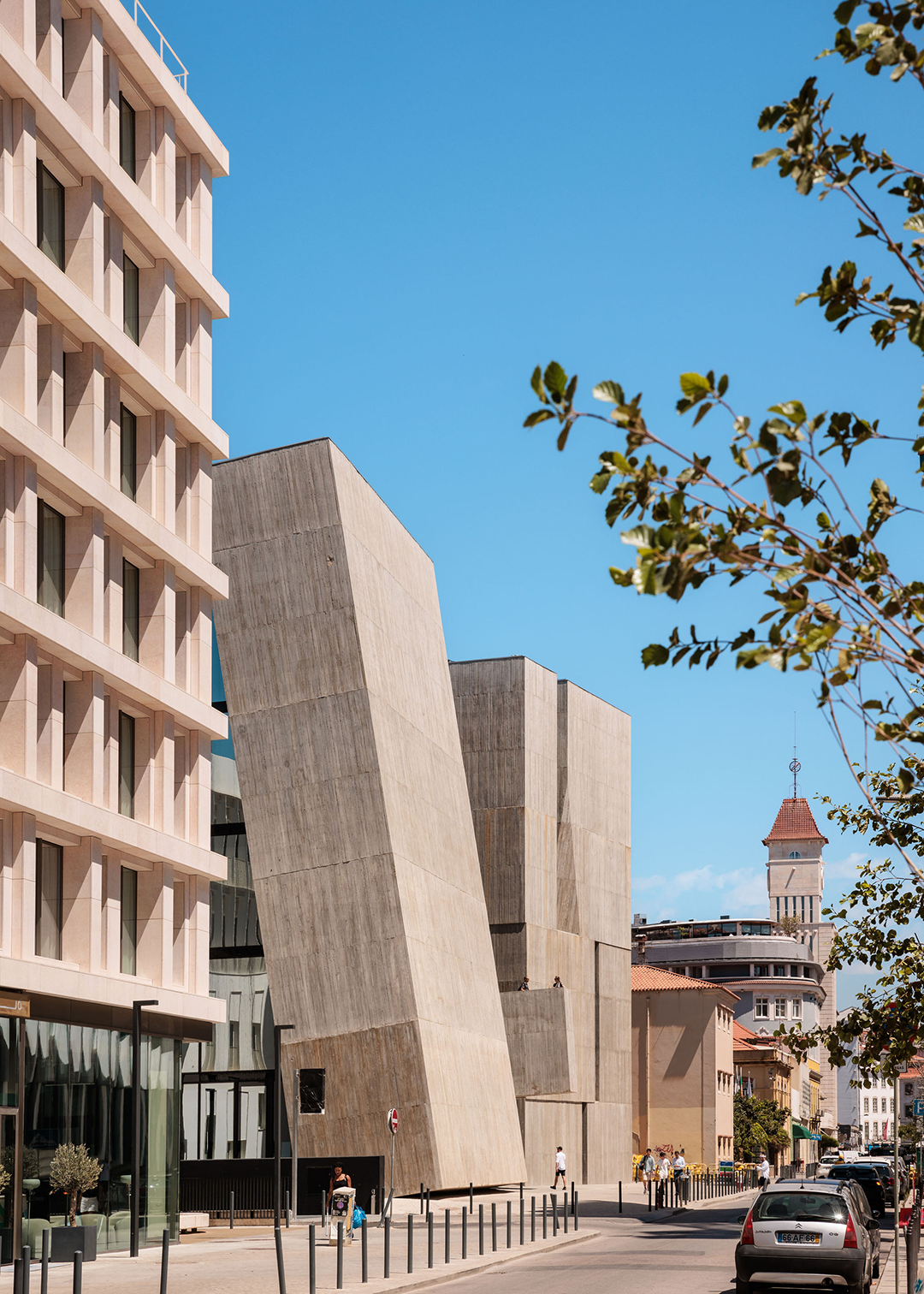
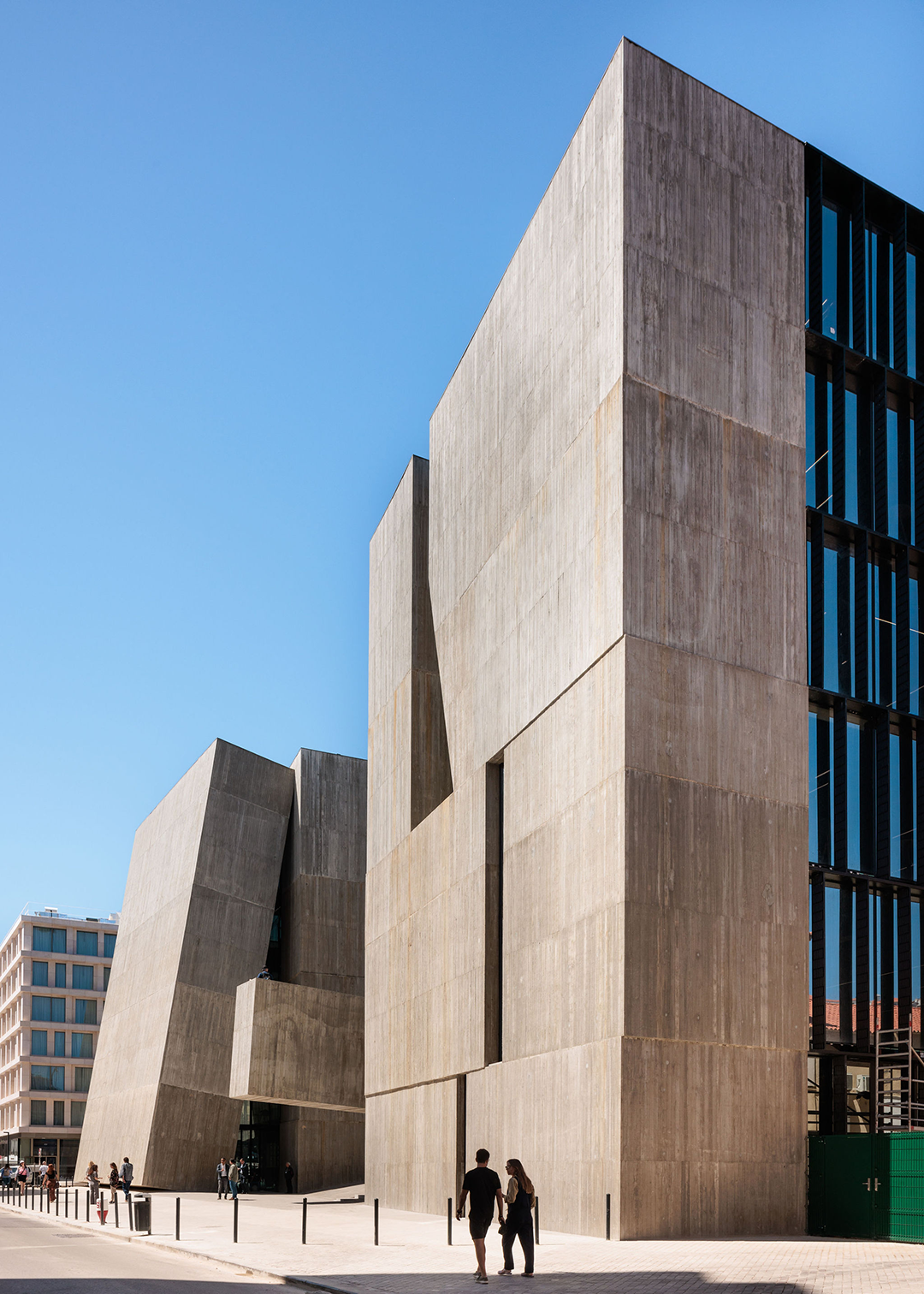
为了同时回应这两种力量,我们将公共空间的地面折叠,通过轻微的坡度实现山丘与河流之间的连续性,并在折叠地面的最高点下方,将两个线性体块连接起来。
So, in order to respond to both forces simultaneously, we folded the ground of the public space with a slight slope that complied with the hill-river continuity and then connected the two linear volumes under the highest point of the folded ground.
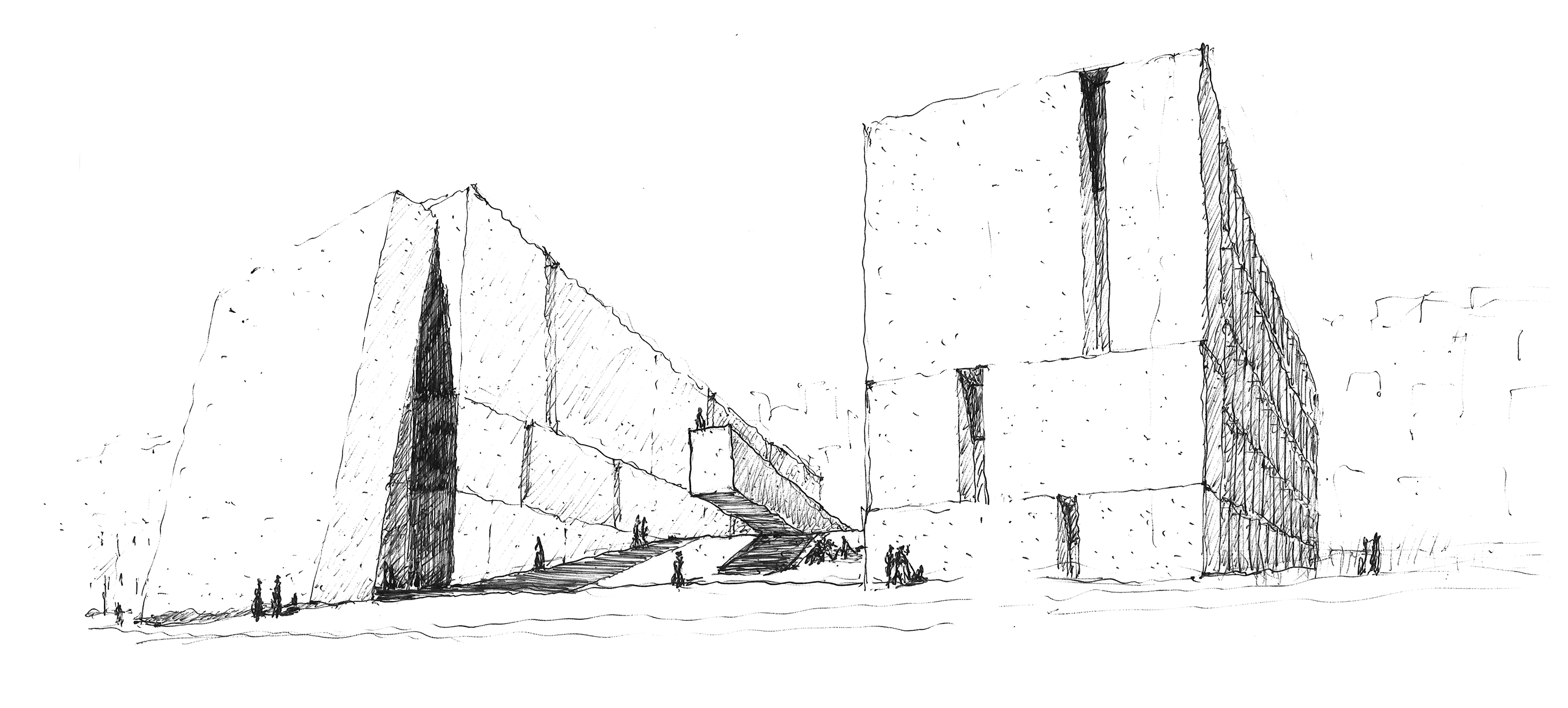
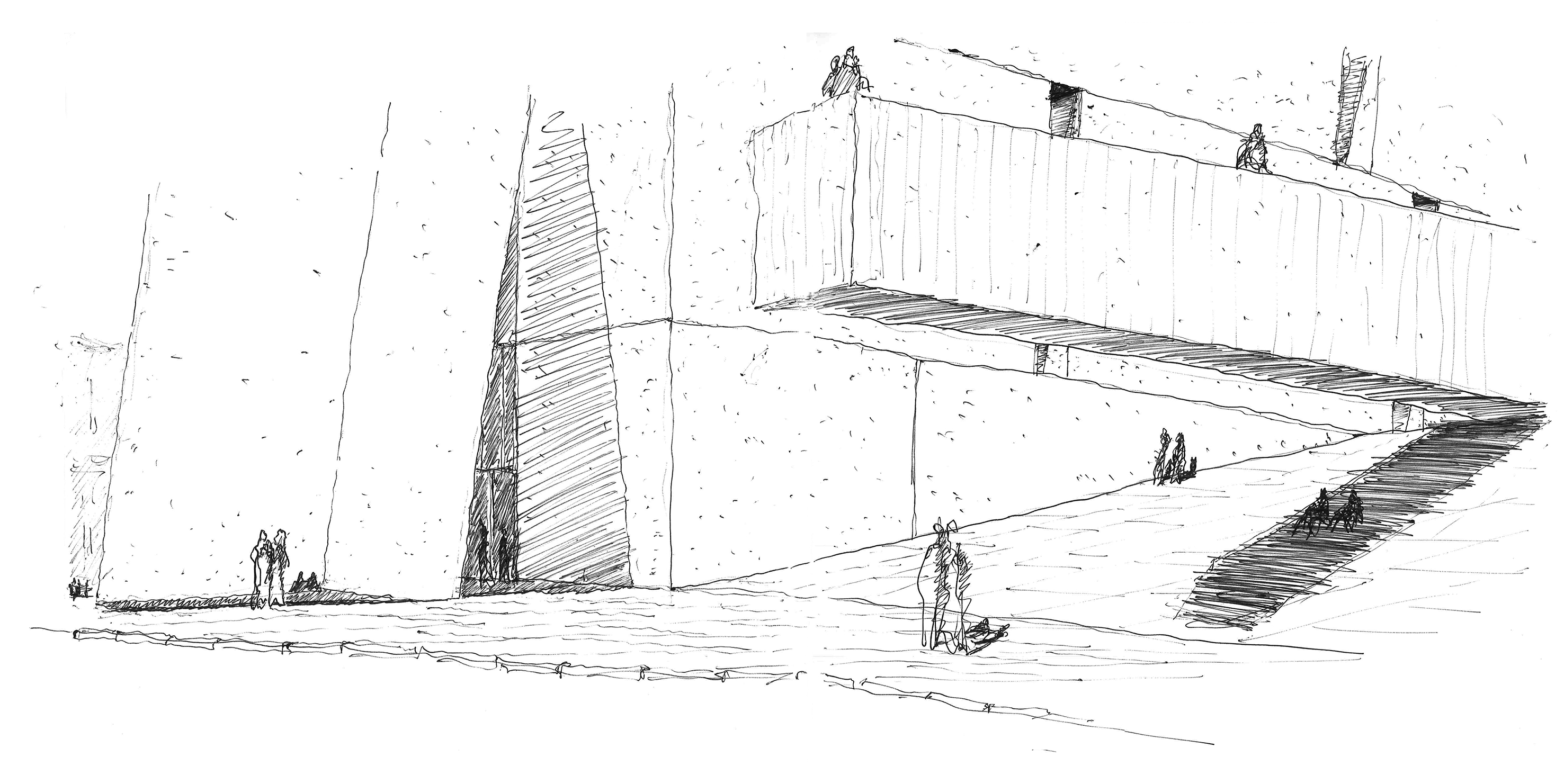
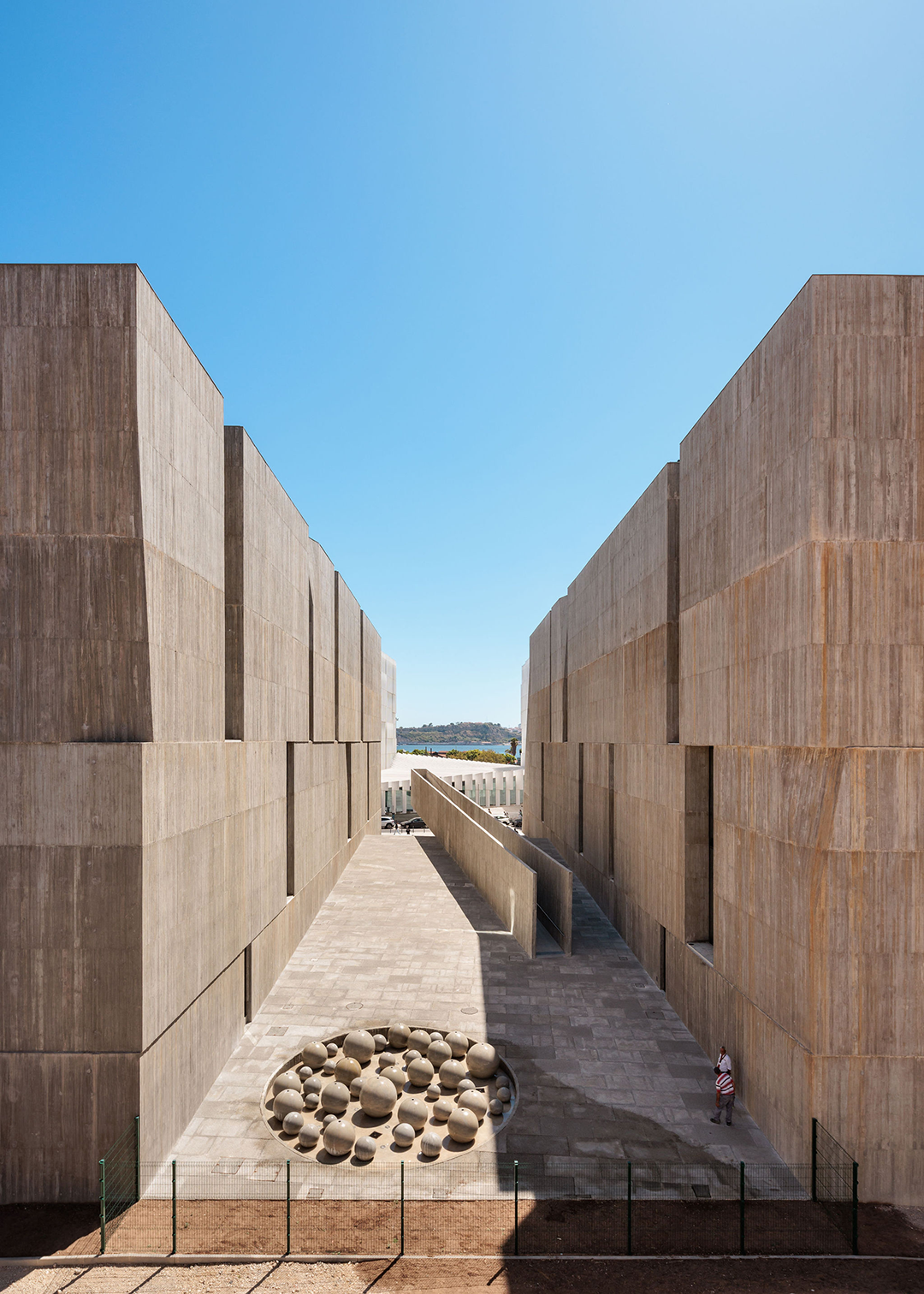
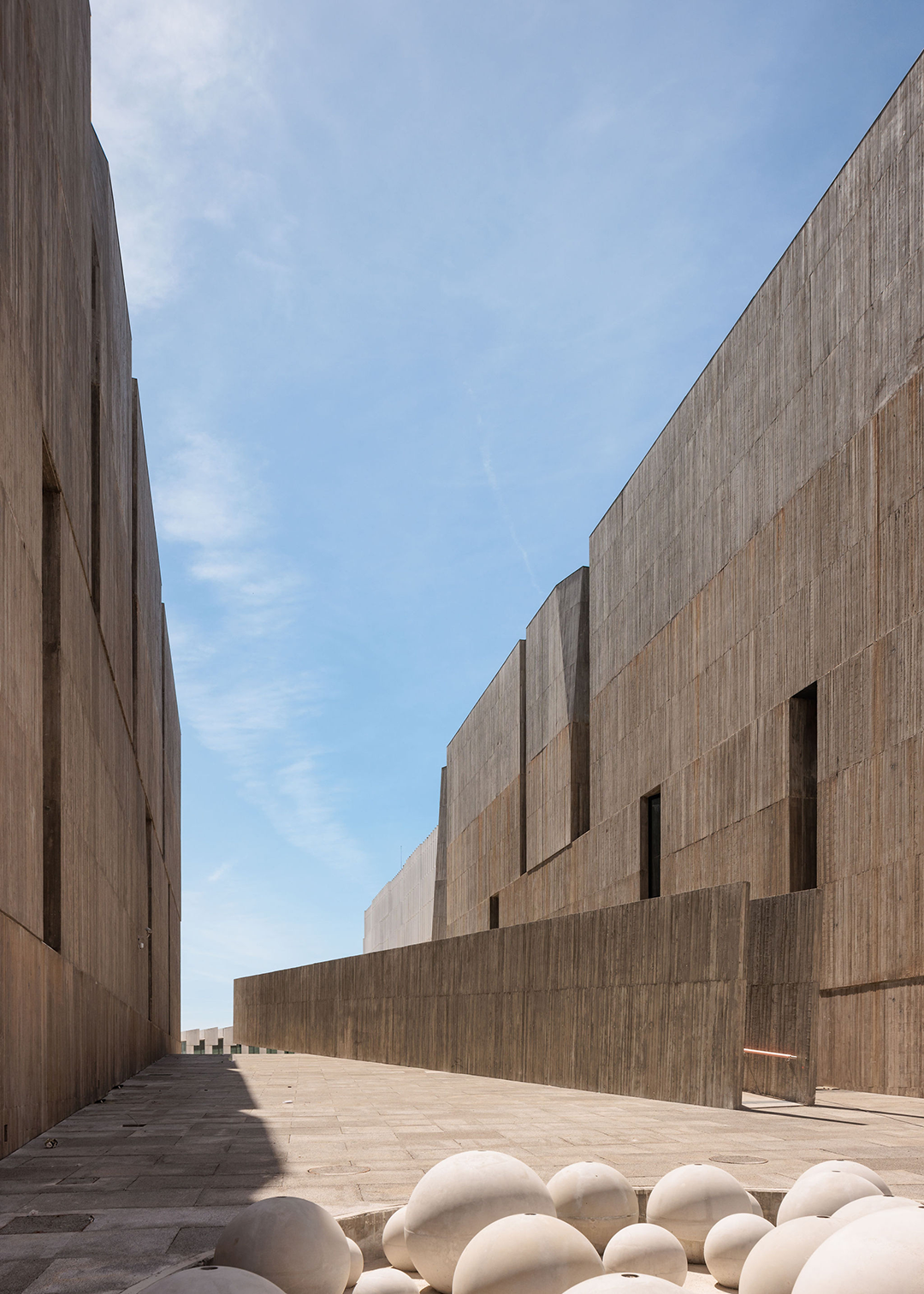
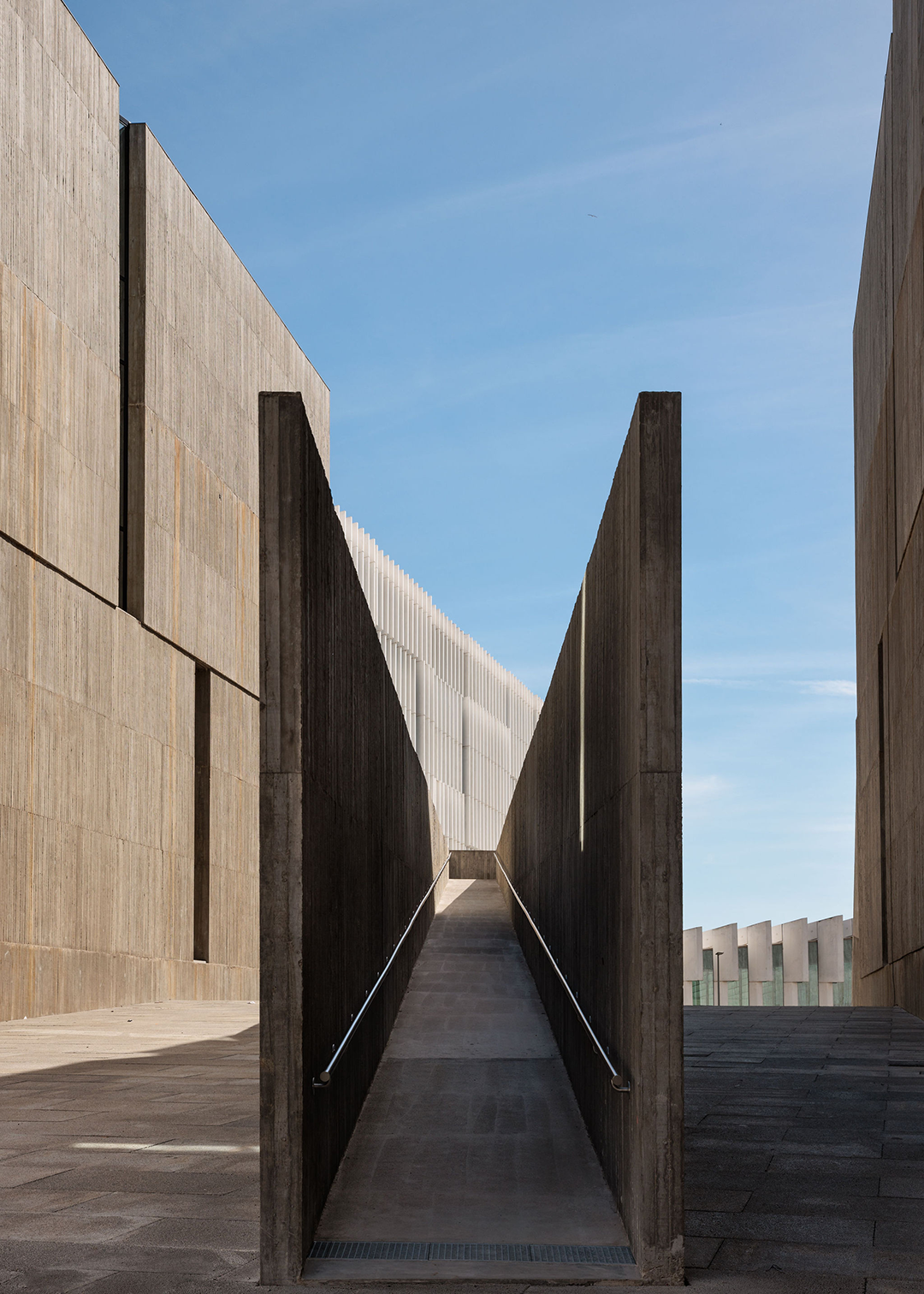
这个人工坡地还解决了地块的另一个问题:由于项目位于里斯本城市网格的第二排,朝向河流的视觉连续性更多停留在理论层面,而非现实层面。街对面的EDP总部大楼,虽然在总体体量上满足了南北方向的连续性,但在行人视角上却阻挡了人对河流的感知。因此,我们在坡地上架起一块混凝土结构,向河流方向悬挑延伸,其高度足以越过相邻建筑,人们便能获得眺望塔霍河的清晰视野。
This artificial sloping ground offered the opportunity to solve another issue of the lot: being on the second row of Lisbon’s urban grid, the visual continuity towards the river was more theoretical than real. The building of EDP across the street, even though as a general massing complied with the north-south continuity, at the pedestrian level blocked any perception of the river. So, we laid a concrete piece that by resting on the slope, cantilevered towards the river, gaining enough height to be able to lean over the adjacent building, achieving a clear view of the Tajo.
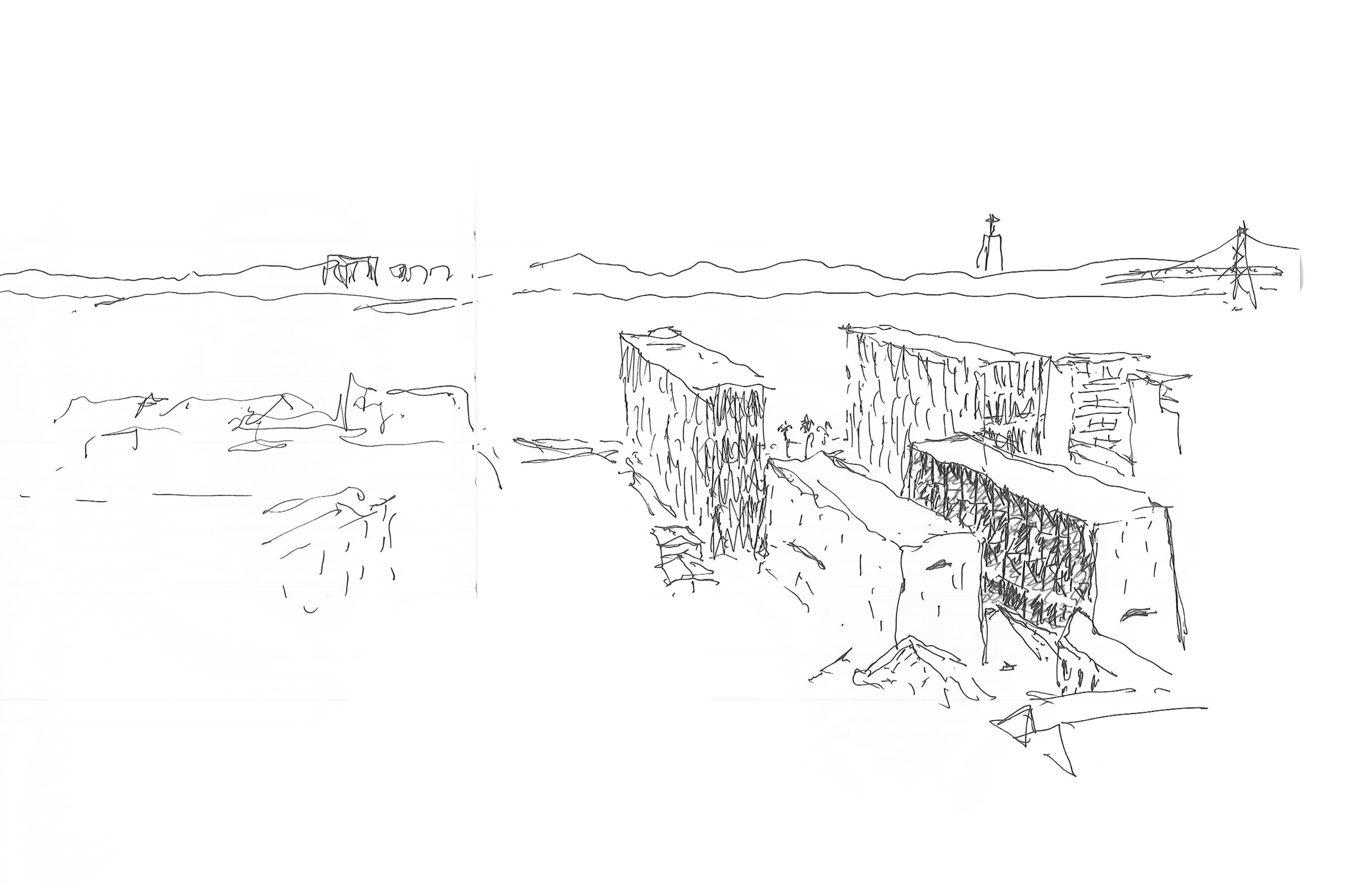
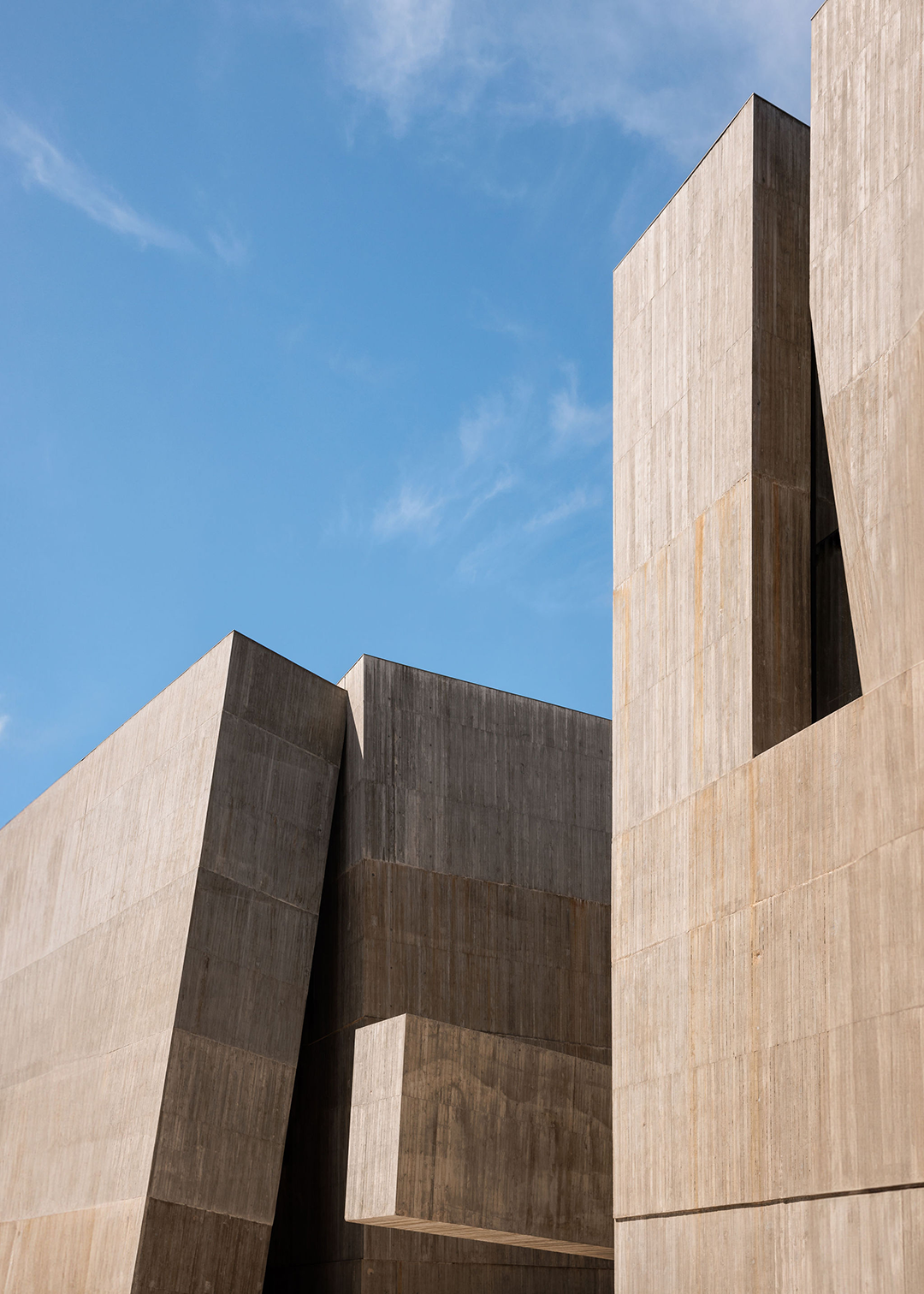
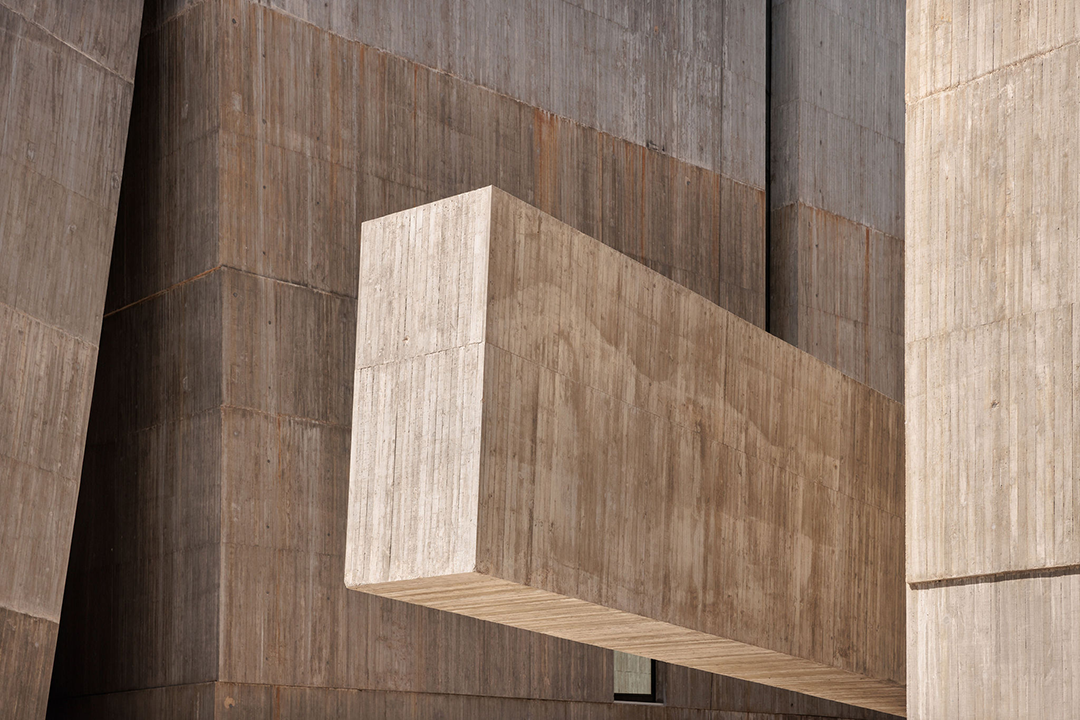
位于建筑群核心的广场完全向公众开放。为保持这种开放性,建筑入口设在南侧,既与广场互动,又避免对其形成主导。底层的公共咖啡馆也进一步增强了街区的公共性和社区氛围。
The square at the core of the complex is exclusively public. To preserve this point, the access to the building is on the south front, participating but not dominating this public square.
A public Café at the ground also contributes to the civic character of the neighborhood.
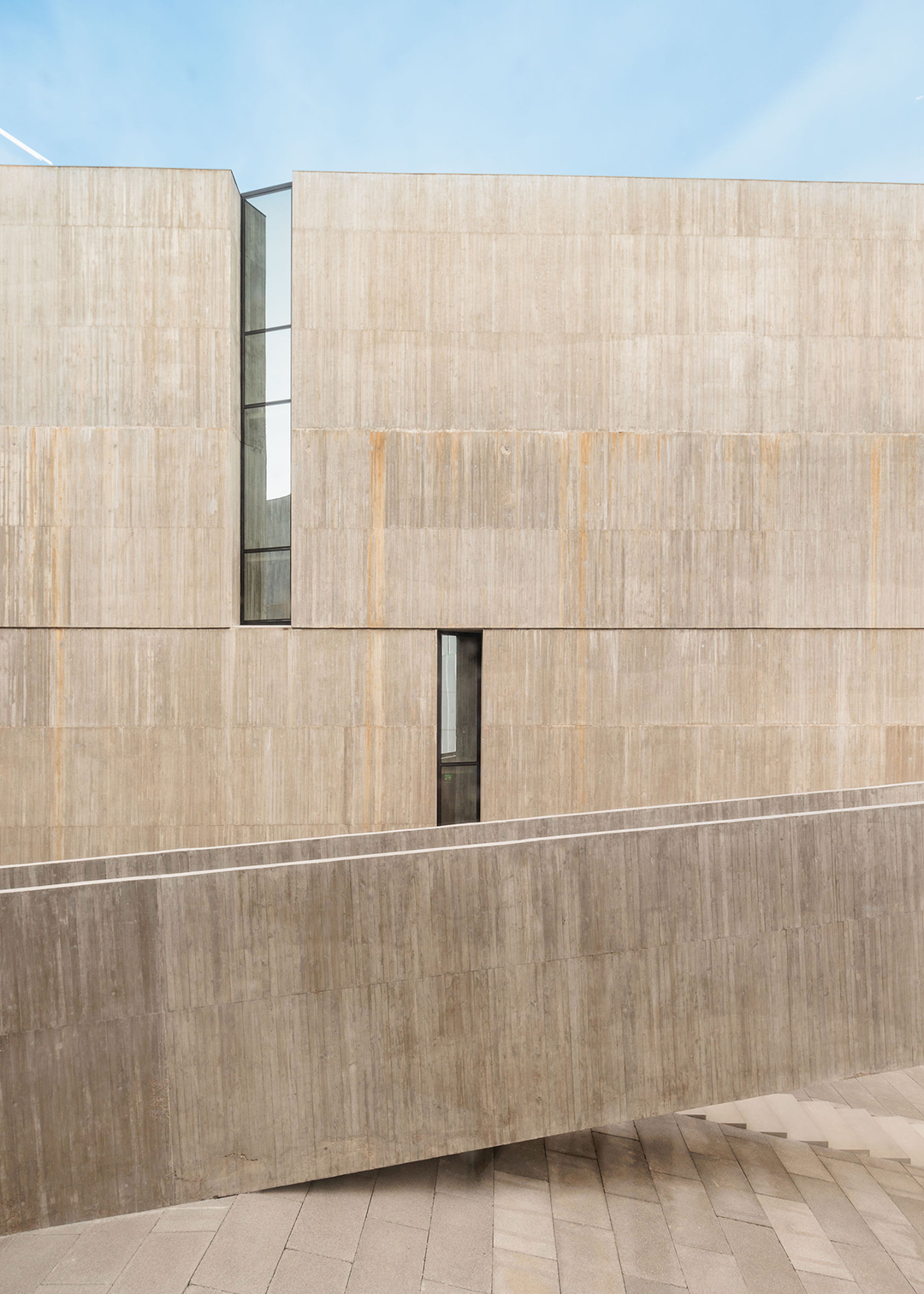
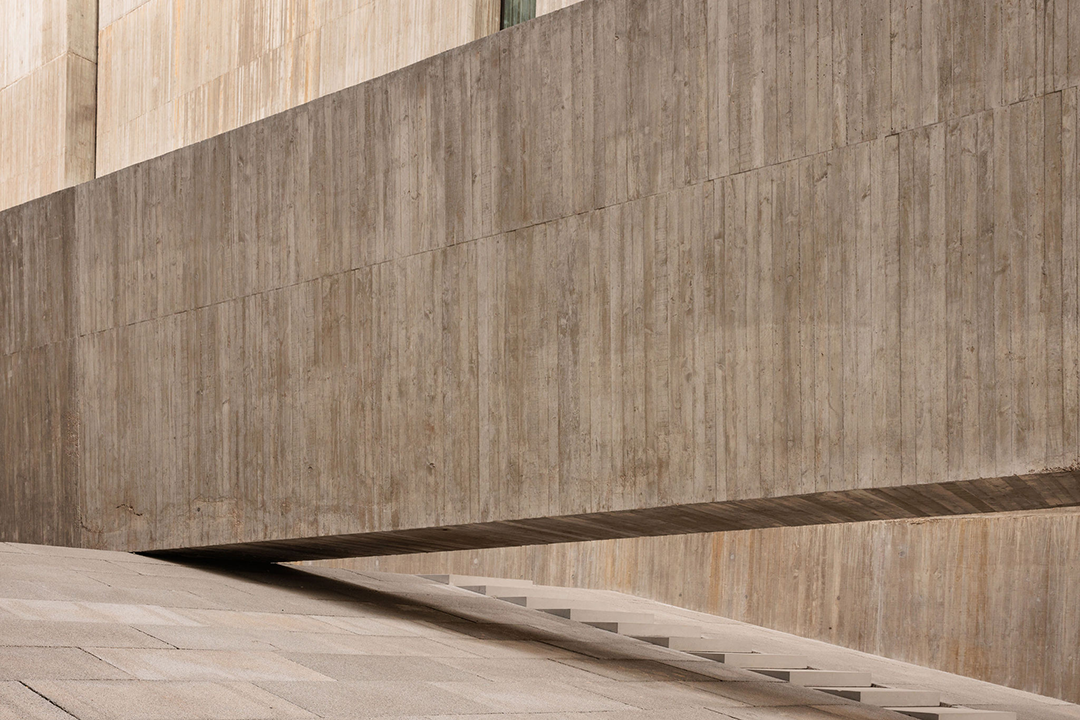
本项目采用高效节能的建筑手法,同时也塑造恰当的建筑气质。例如,地块核心的公共广场被设计得如同一块雕刻的混凝土体量,既利用热惰性材料提升了能效,又通过对楼层分界的消除赋予了建筑群一种厚重的纪念感。
The proposal considers architectural operations that are energetically efficient while contributing to setting the right character of the building. For example, the public square at the core of the lot was treated as if it was a carved concrete monolith to both ensure energetic thermal mass and provide a civic monumentality to the complex by erasing the notion of floor.
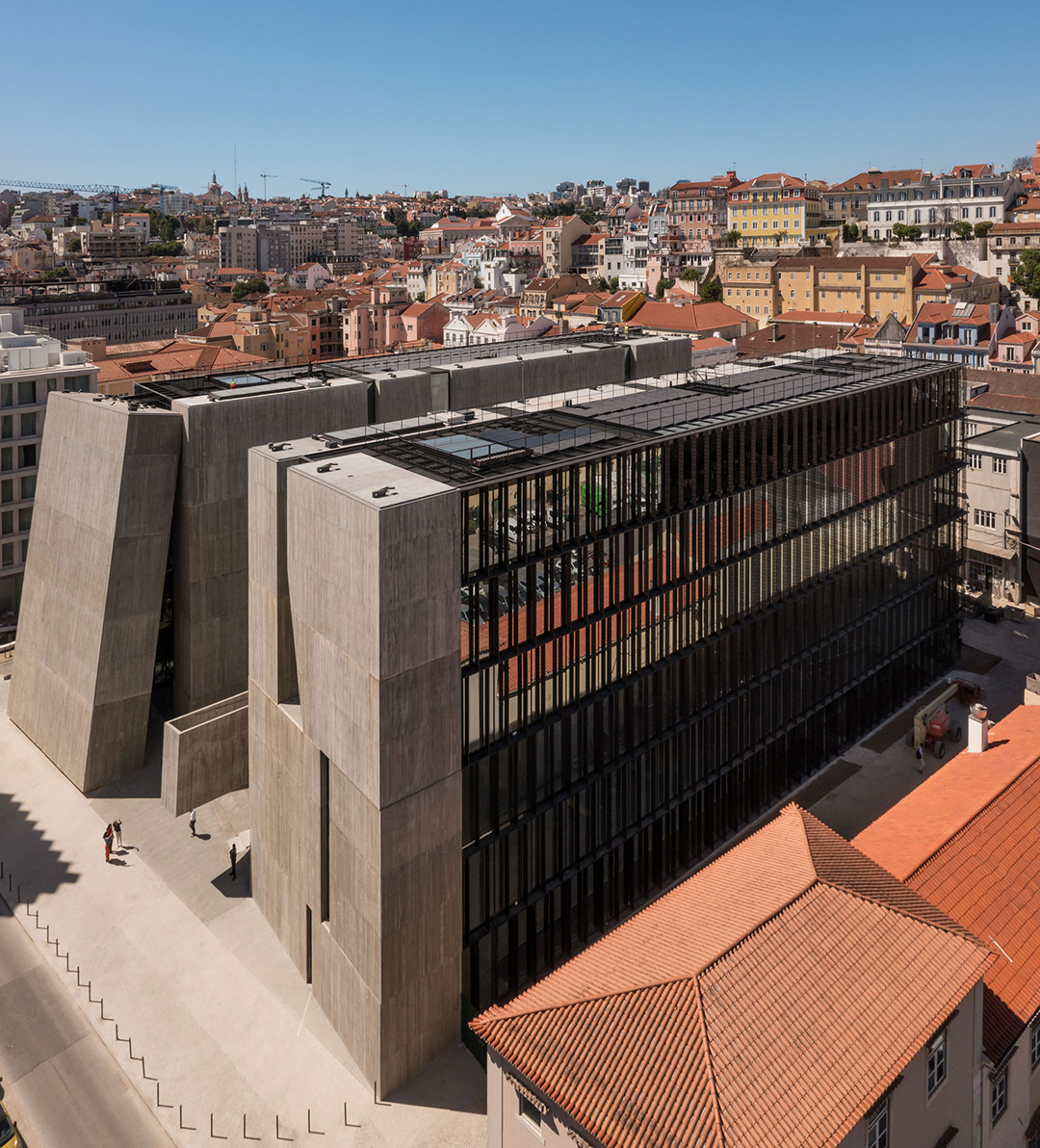
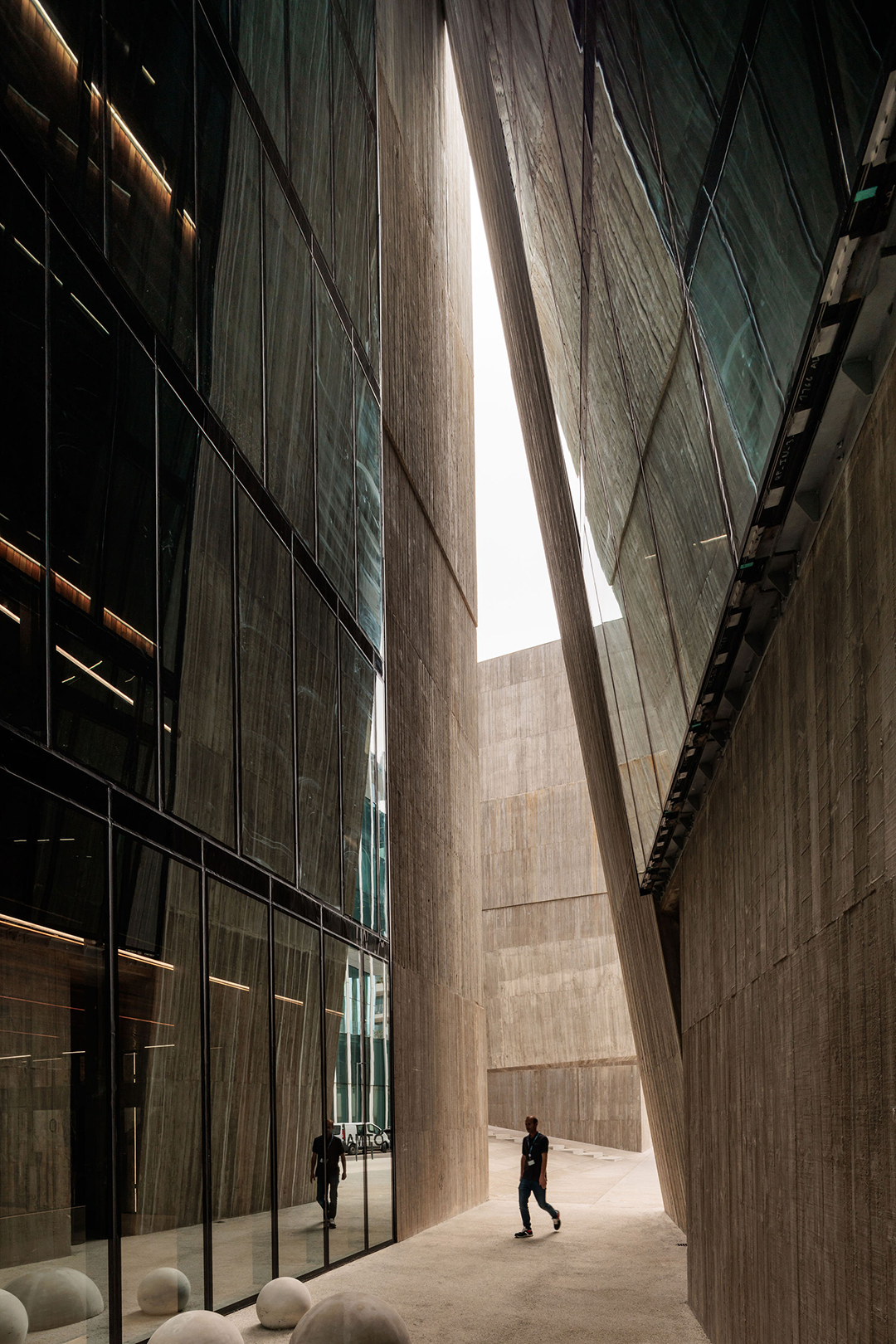
相较之下,建筑的侧面立面采用了线性的深格栅系统,并设置内凹玻璃,这样的设计能够避免阳光直射,同时也清晰地表达出楼层的尺度,使办公环境更亲切、贴近人的尺度。
As opposite, on the peripheral facades, a rather deep grid of linear elements with recessed glass works as a sunshade system to avoid direct sun radiation, while expressing the scale of the different floors and thus providing domesticity to the working environment.

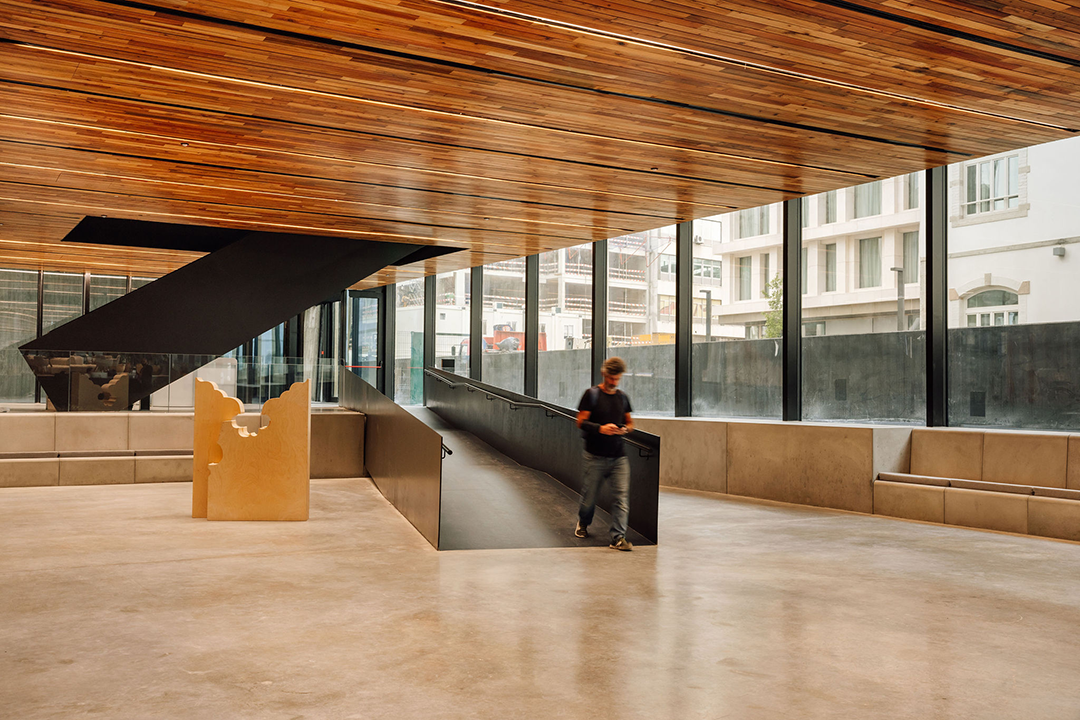
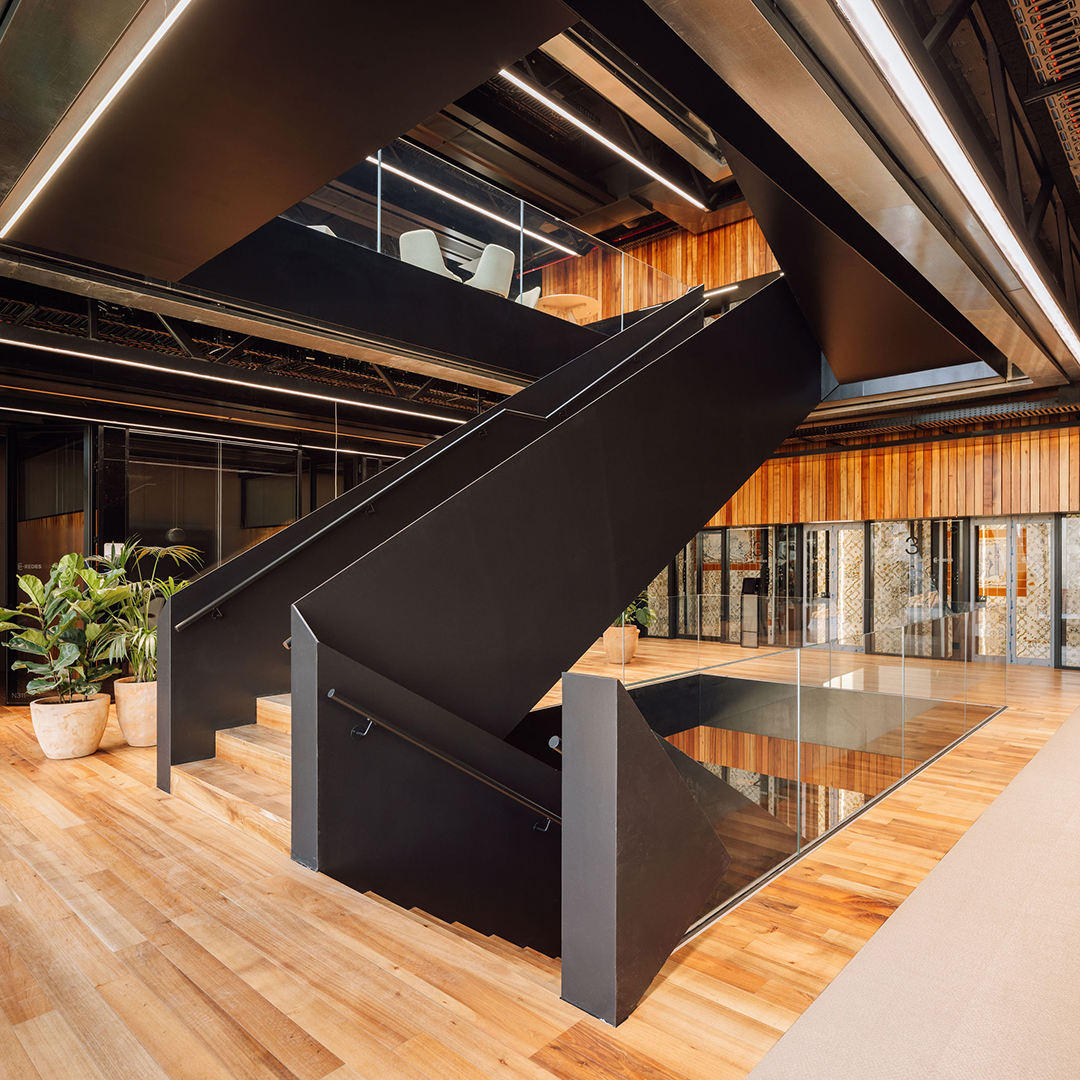
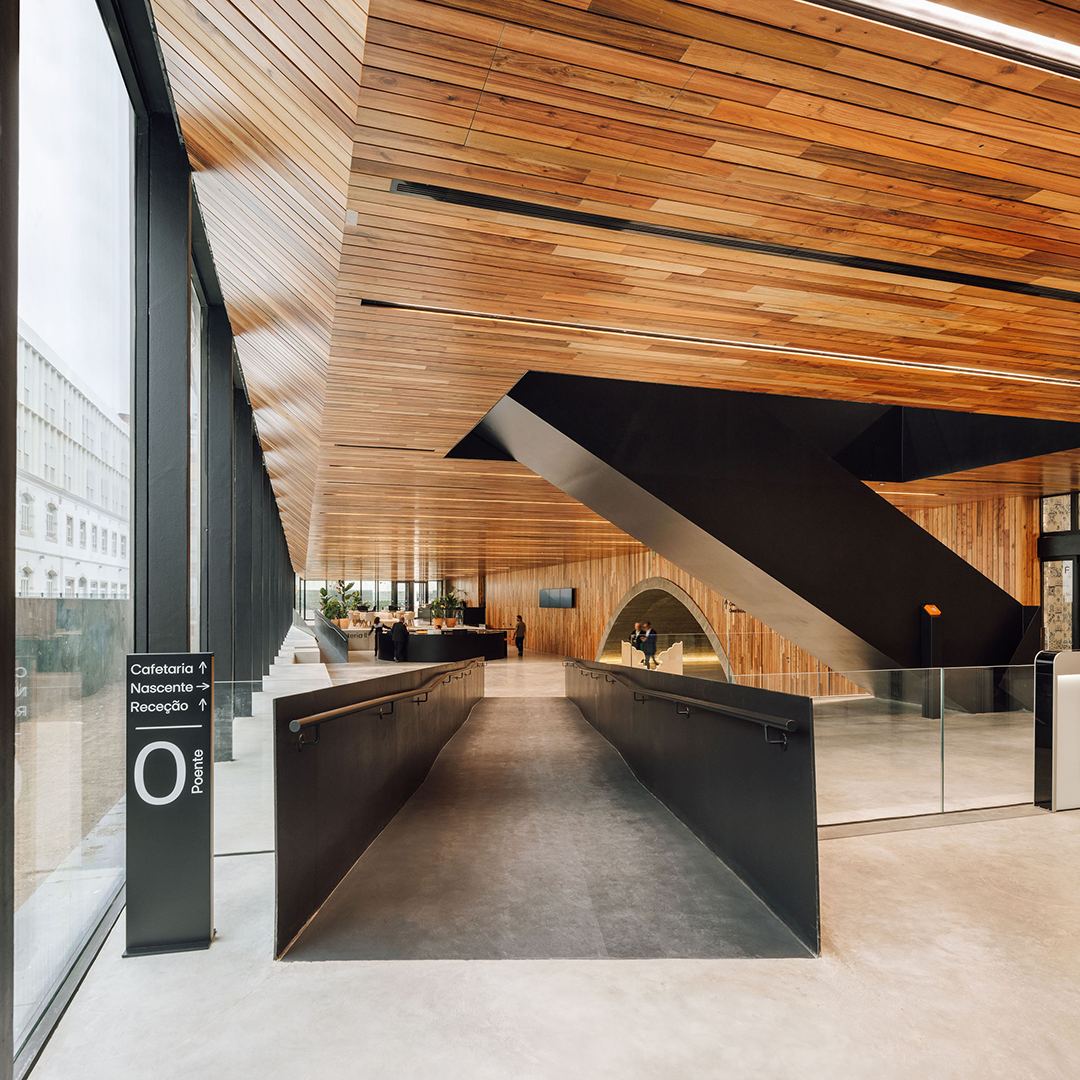
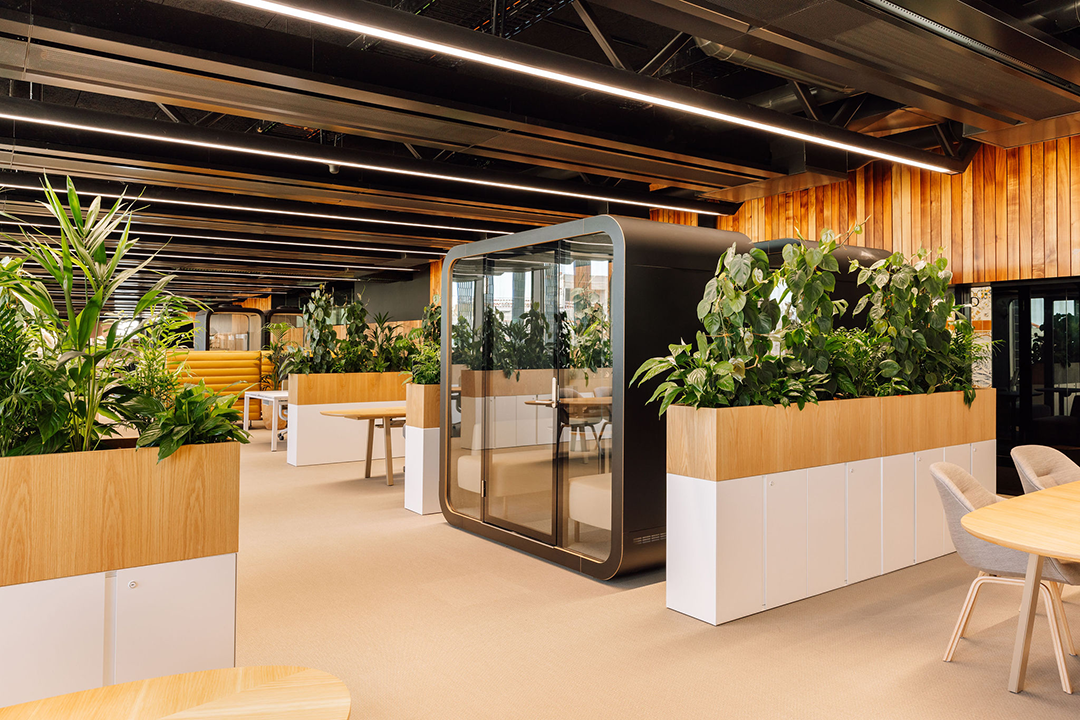
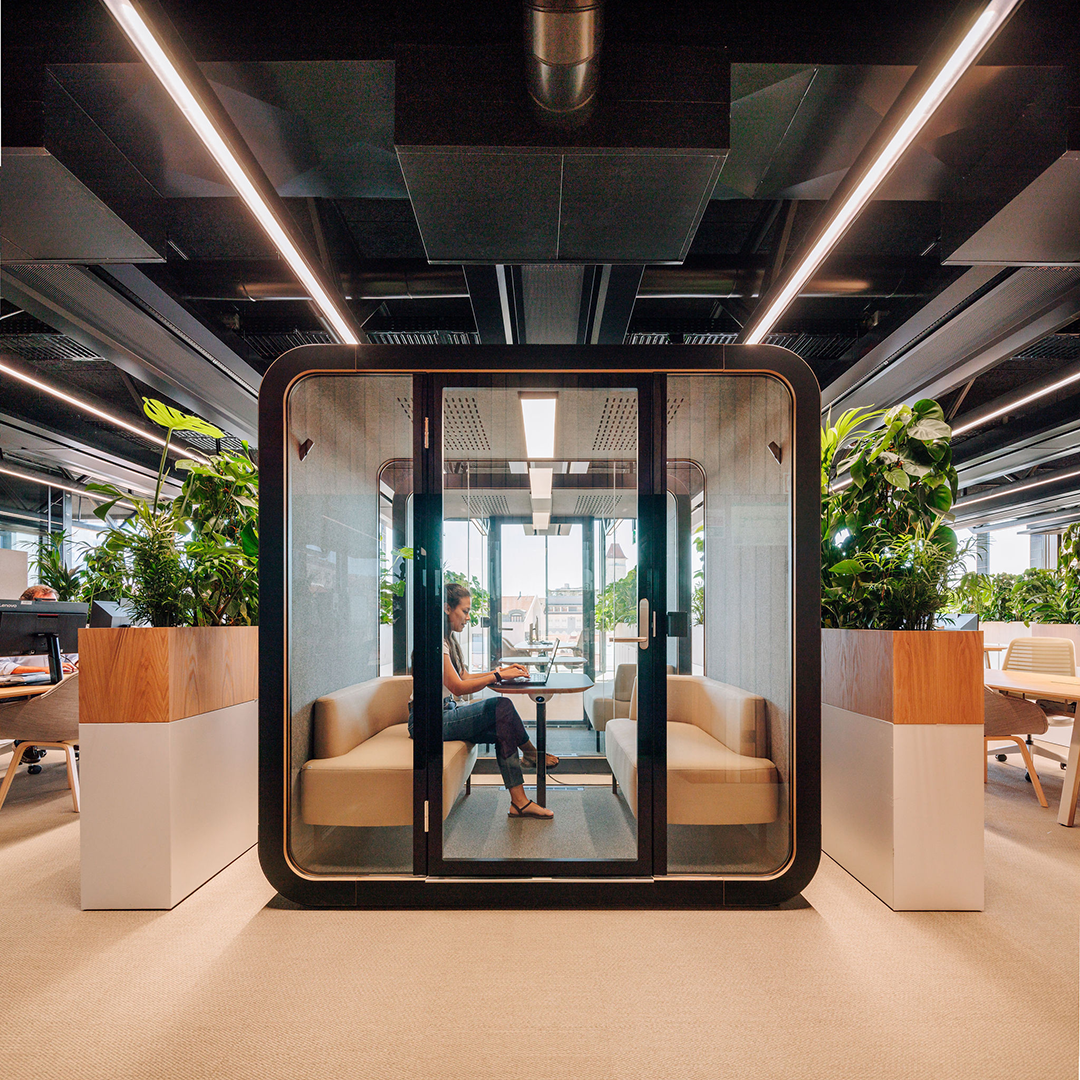
项目的最终目标是为人们的工作创造更好的环境,同时这也是一次切实改善人们日常生活质量的机会。
Finally, the building’s ultimate purpose is to provide the right environment for people to work, as it is an opportunity to drastically improve people’s daily quality of life.
建筑内部空间布局,根据从传统的独立工位到开放的会议空间等不同需求,混合了个体与集体、正式与非正式的多样使用方式。各类休闲空间等设施,距离平面上任意一点都不超过一层楼,以确保每个人都能平等便捷地使用。
The interior layout ranges from individual conventional desks to generous open meeting rooms, mixing both individual/collective and formal/informal uses of the spaces. Immediate amenities like lounges or leisure spaces are no more than 1 floor away from every point of the plan to ensure democratic access.
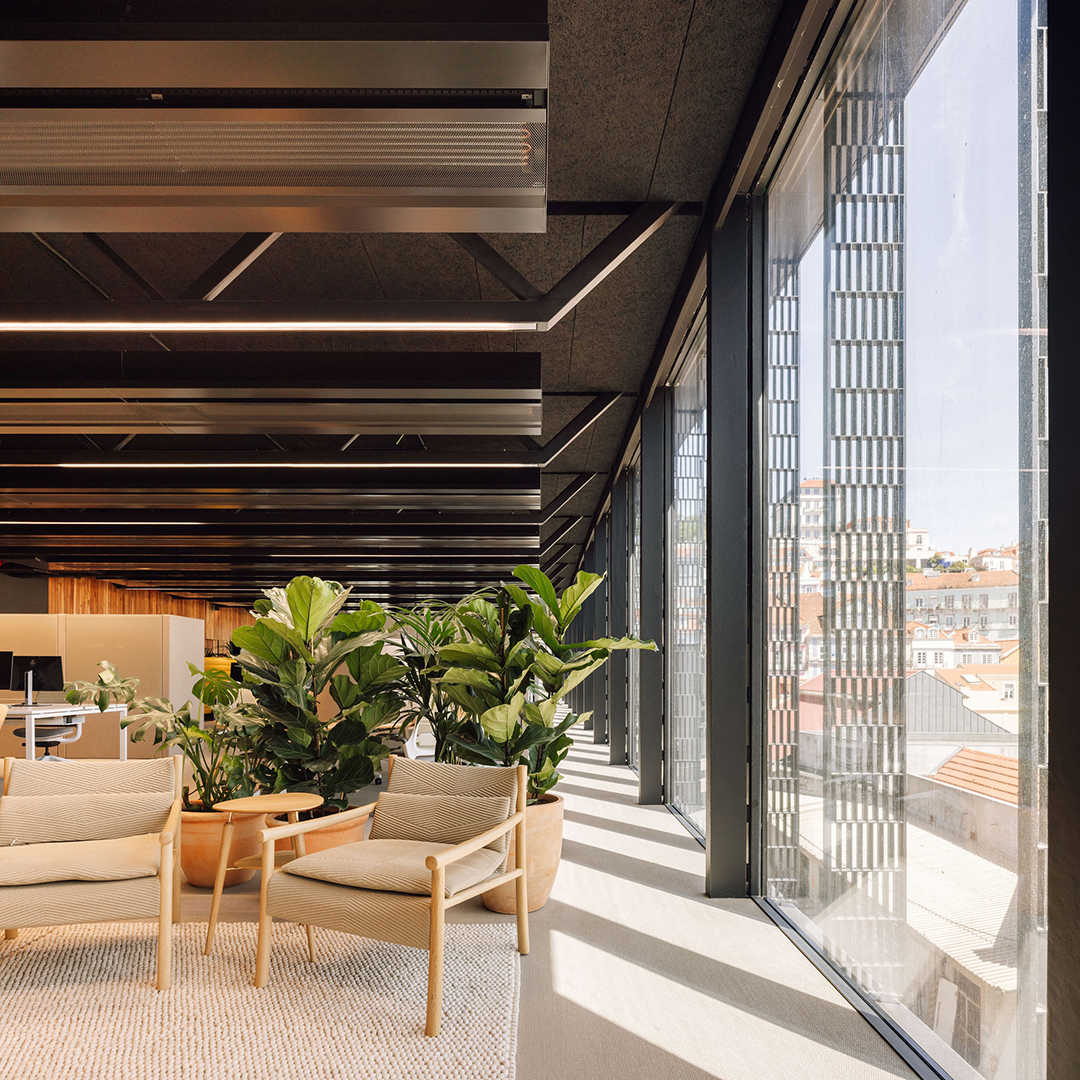
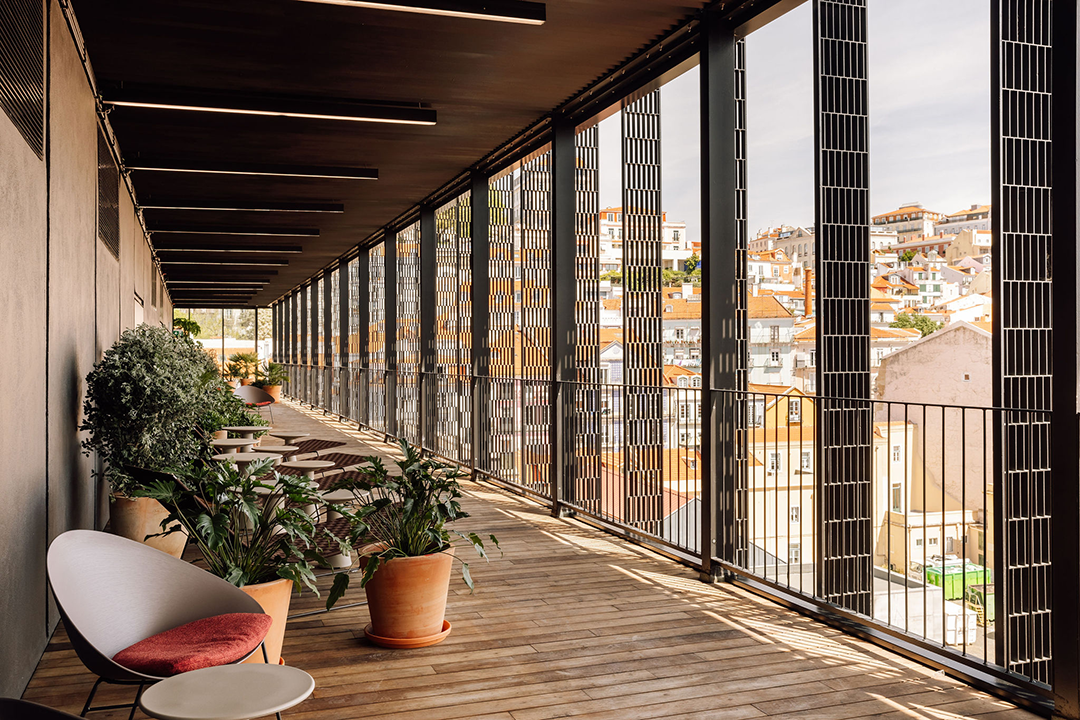
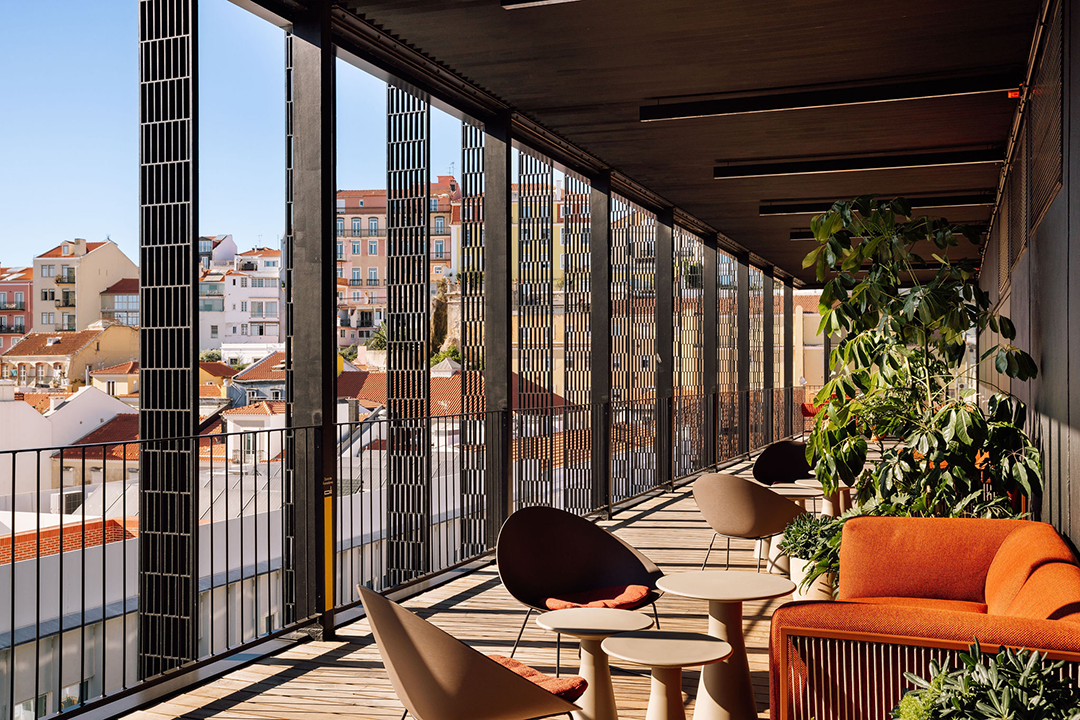
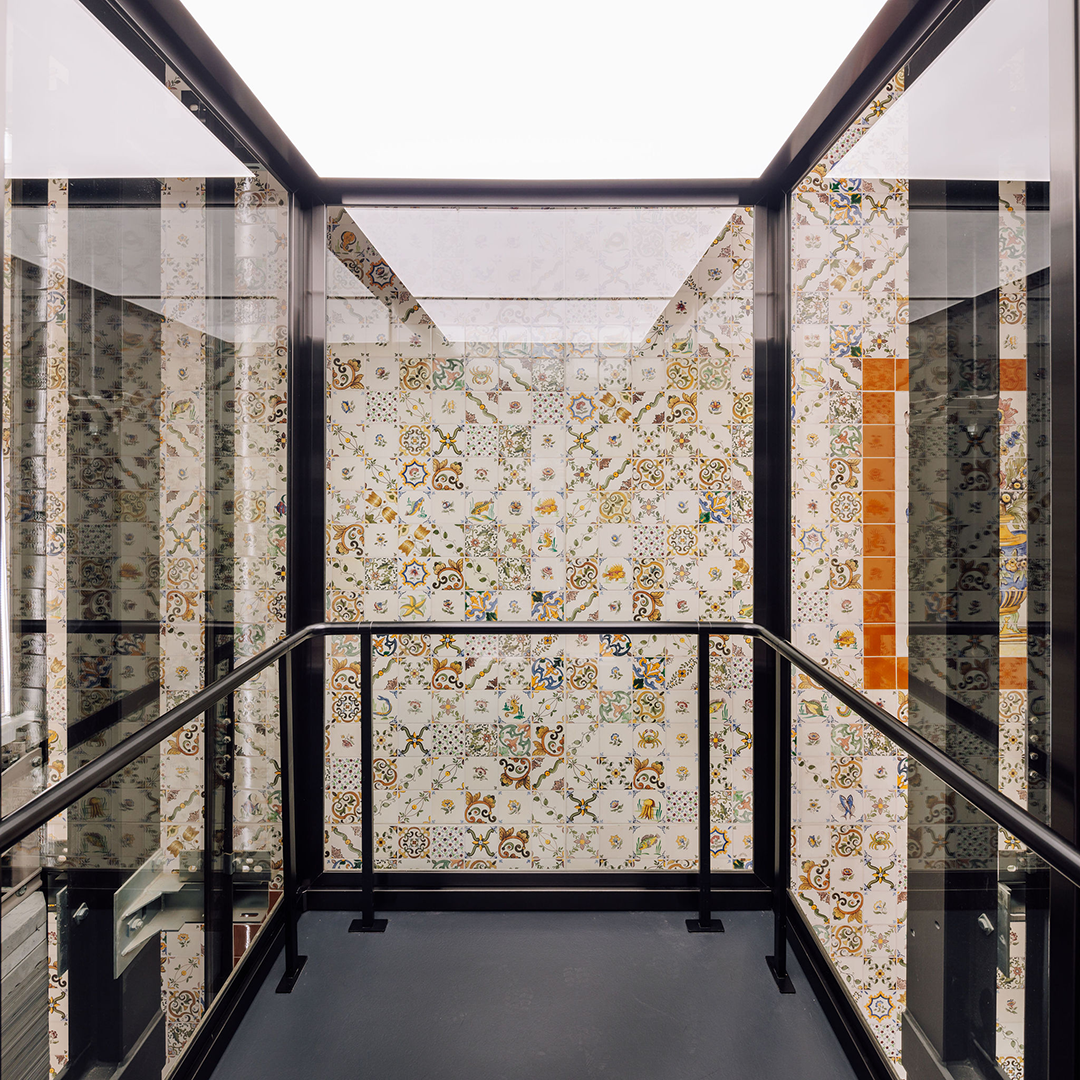
屋顶的健身房和底层的咖啡馆,也共同体现了我们创造更加人文的(而非单一功能性的)未来办公空间的目标。
The inclusion of a gym on the rooftop, and a Café on the ground floor, are also aimed at implementing this more humanistic (and not merely functional) vision of the office of the future.

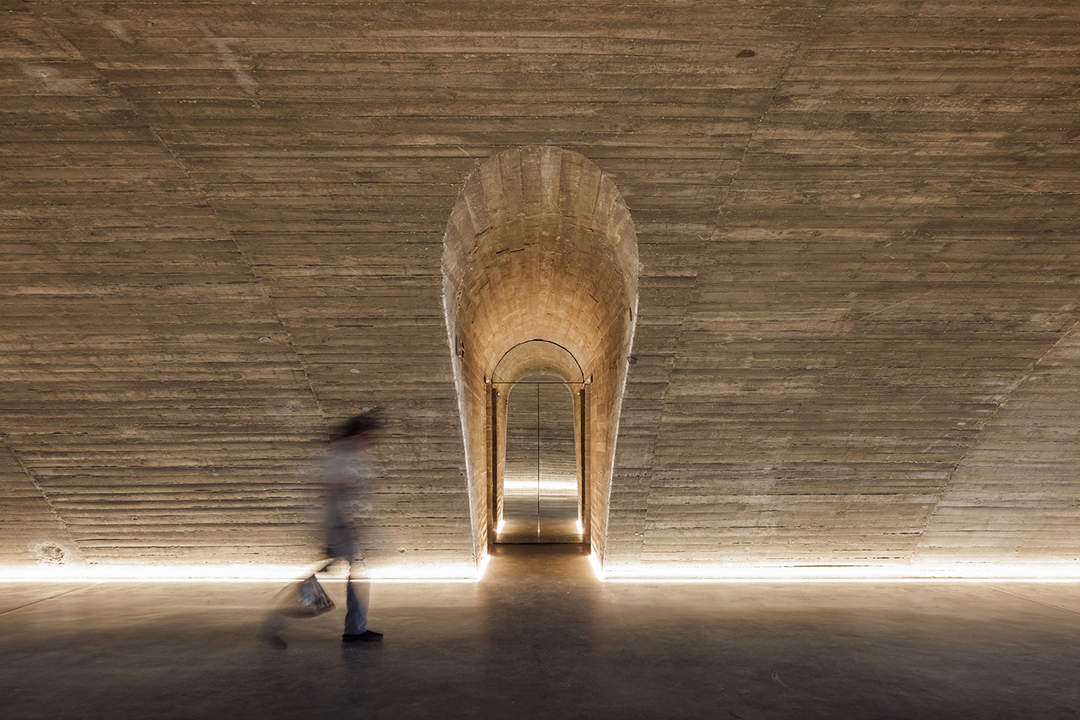
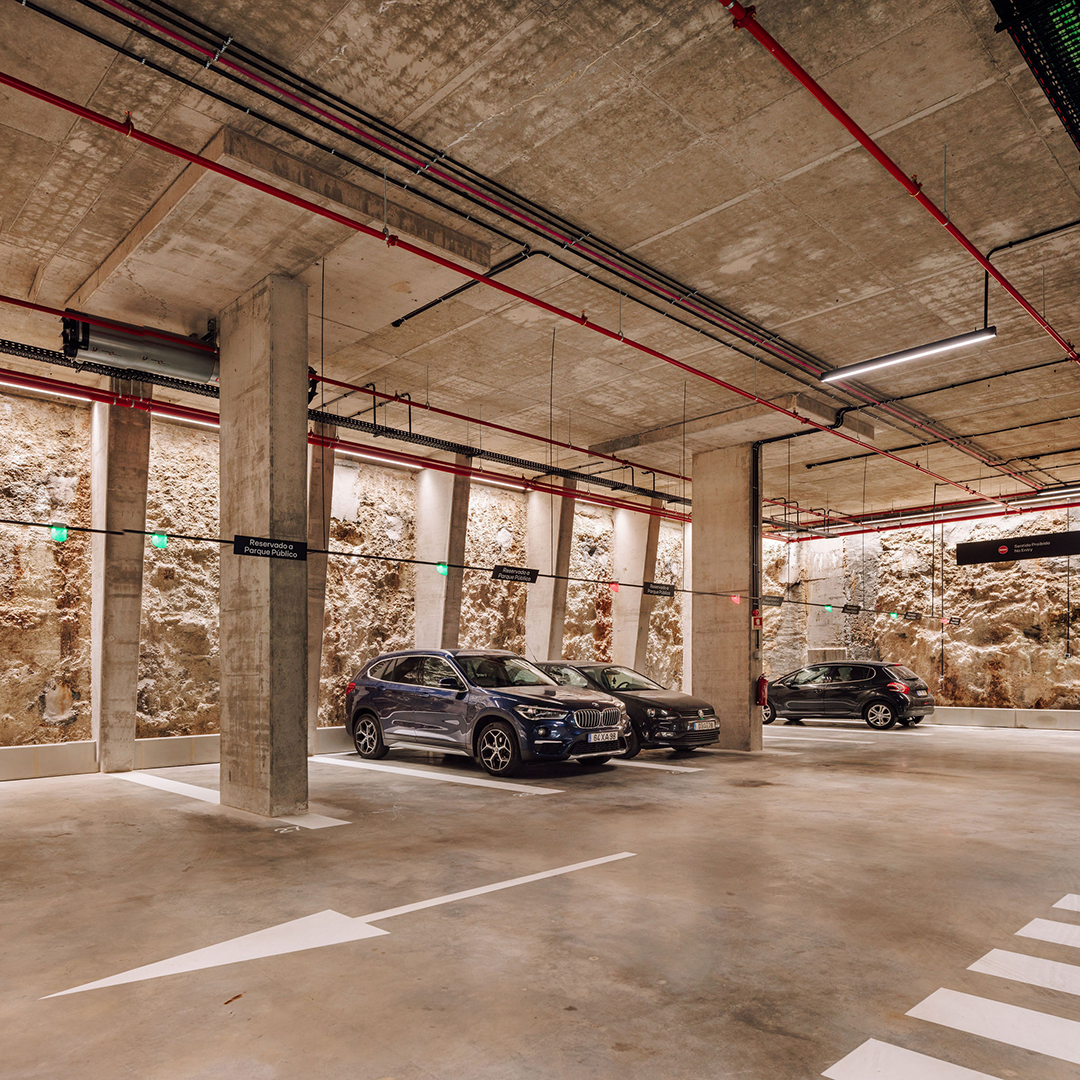
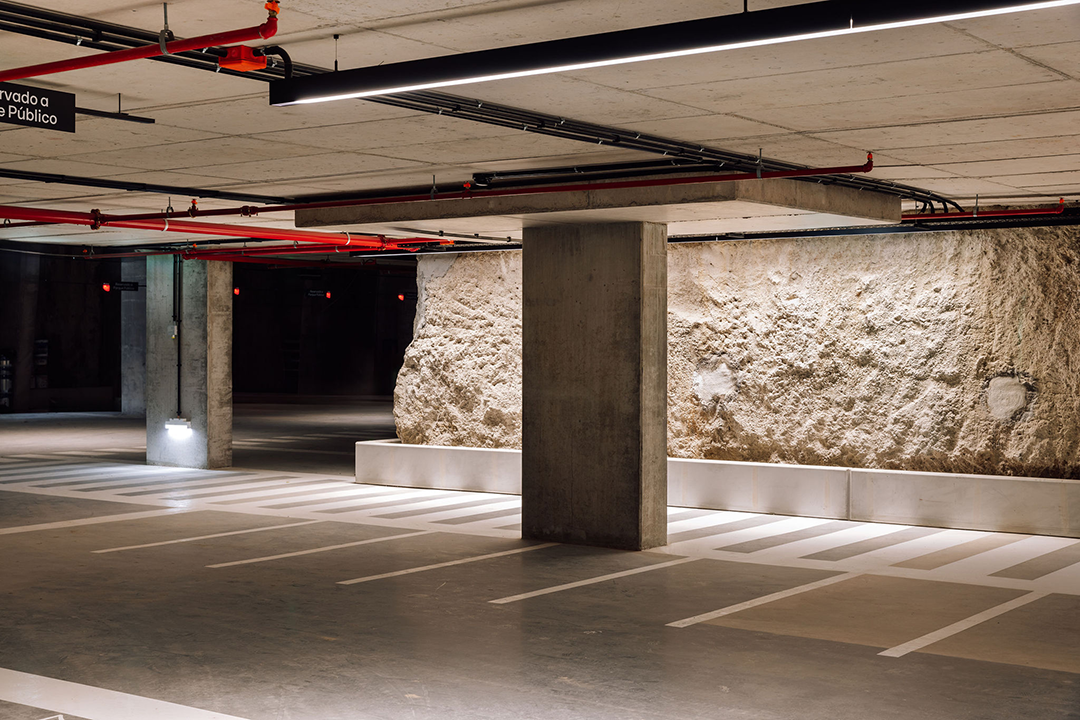
设计图纸 ▽
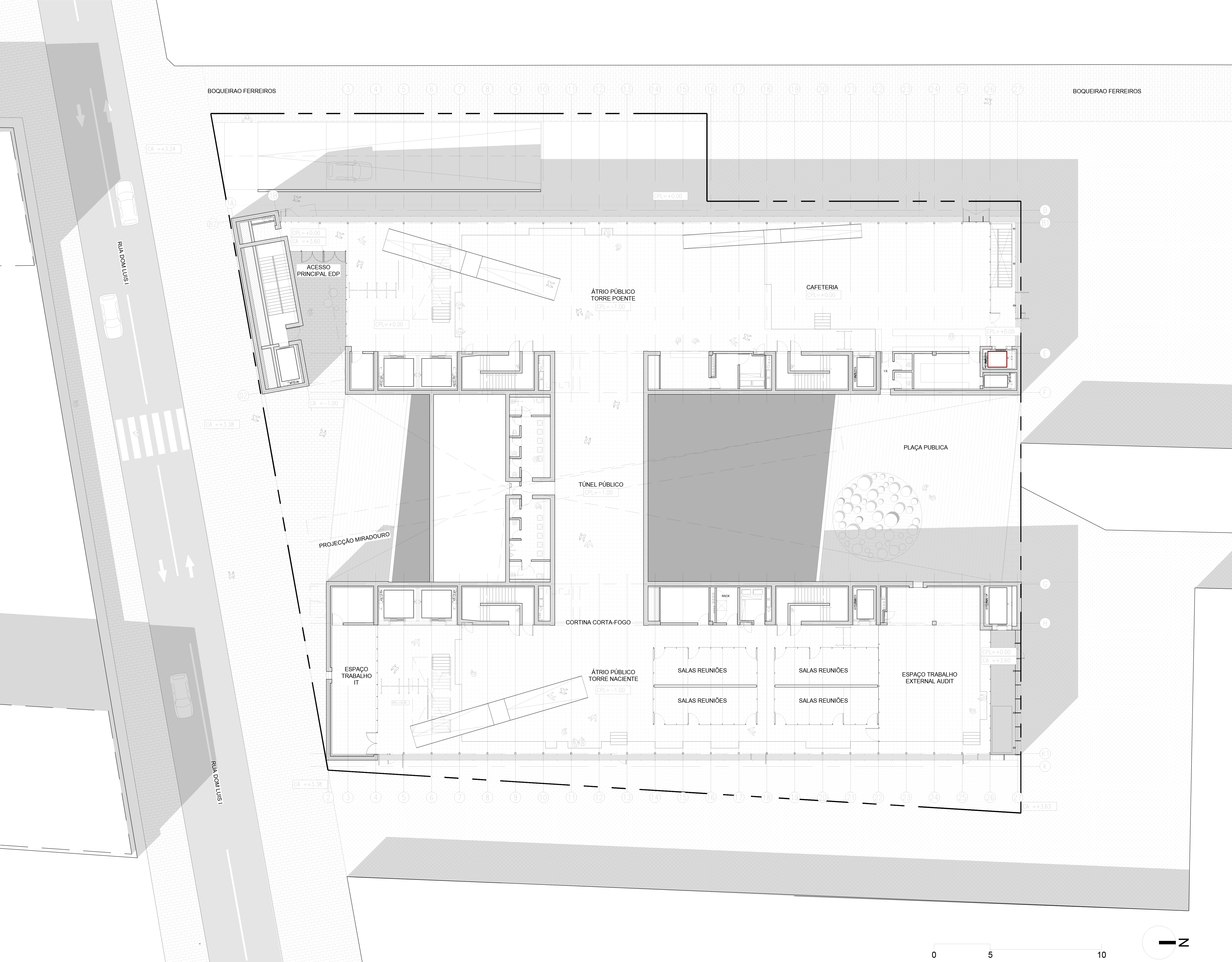


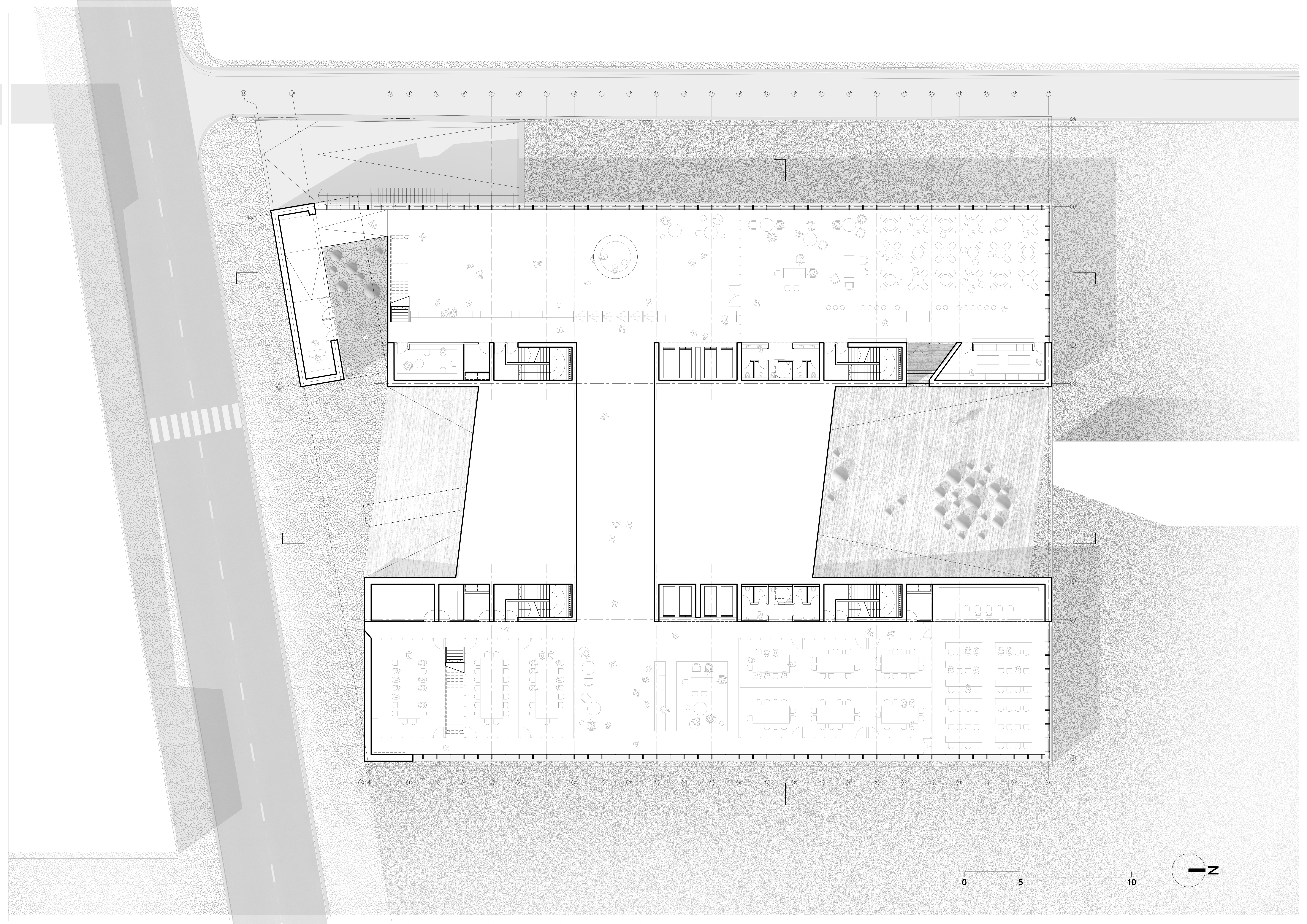
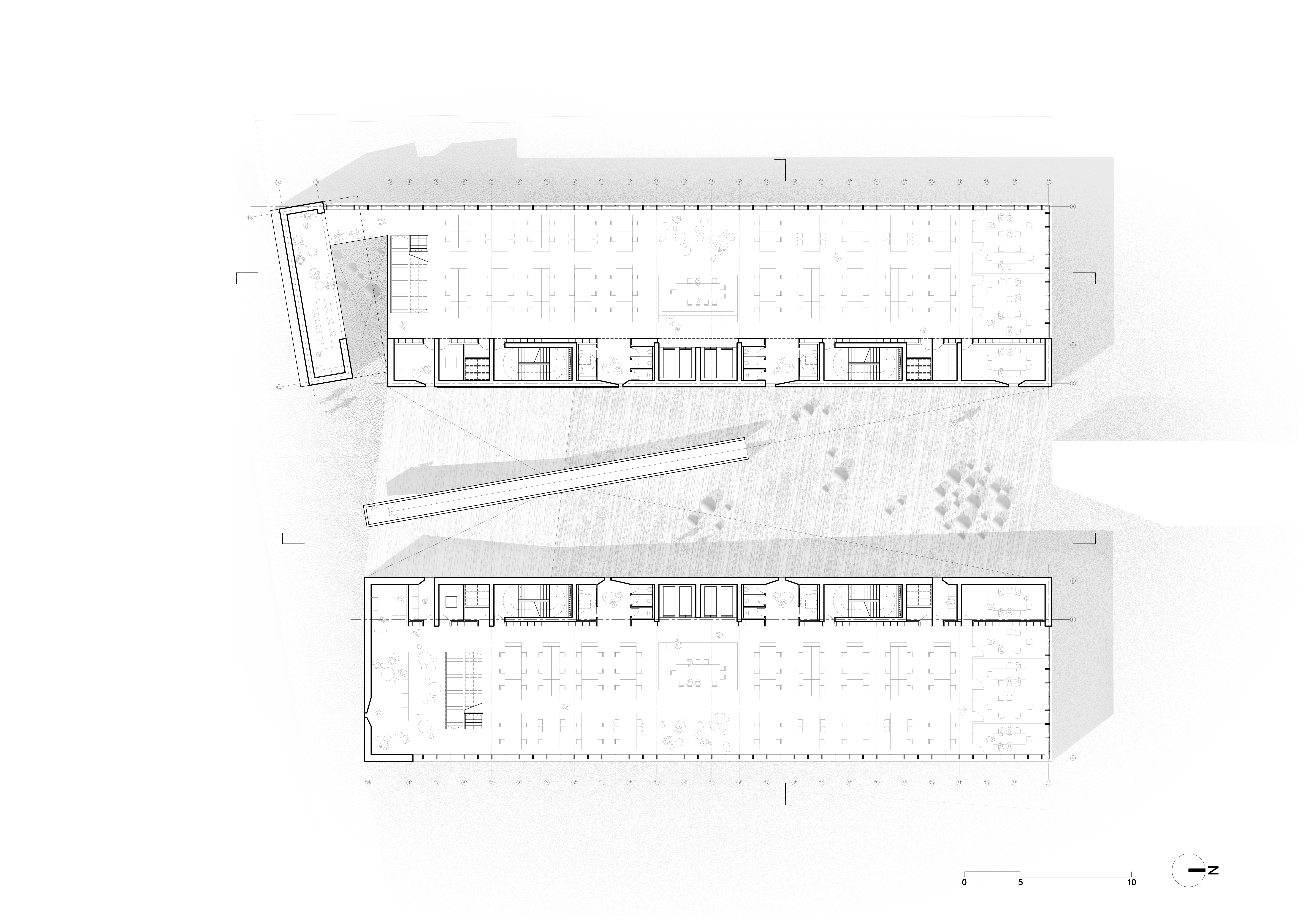
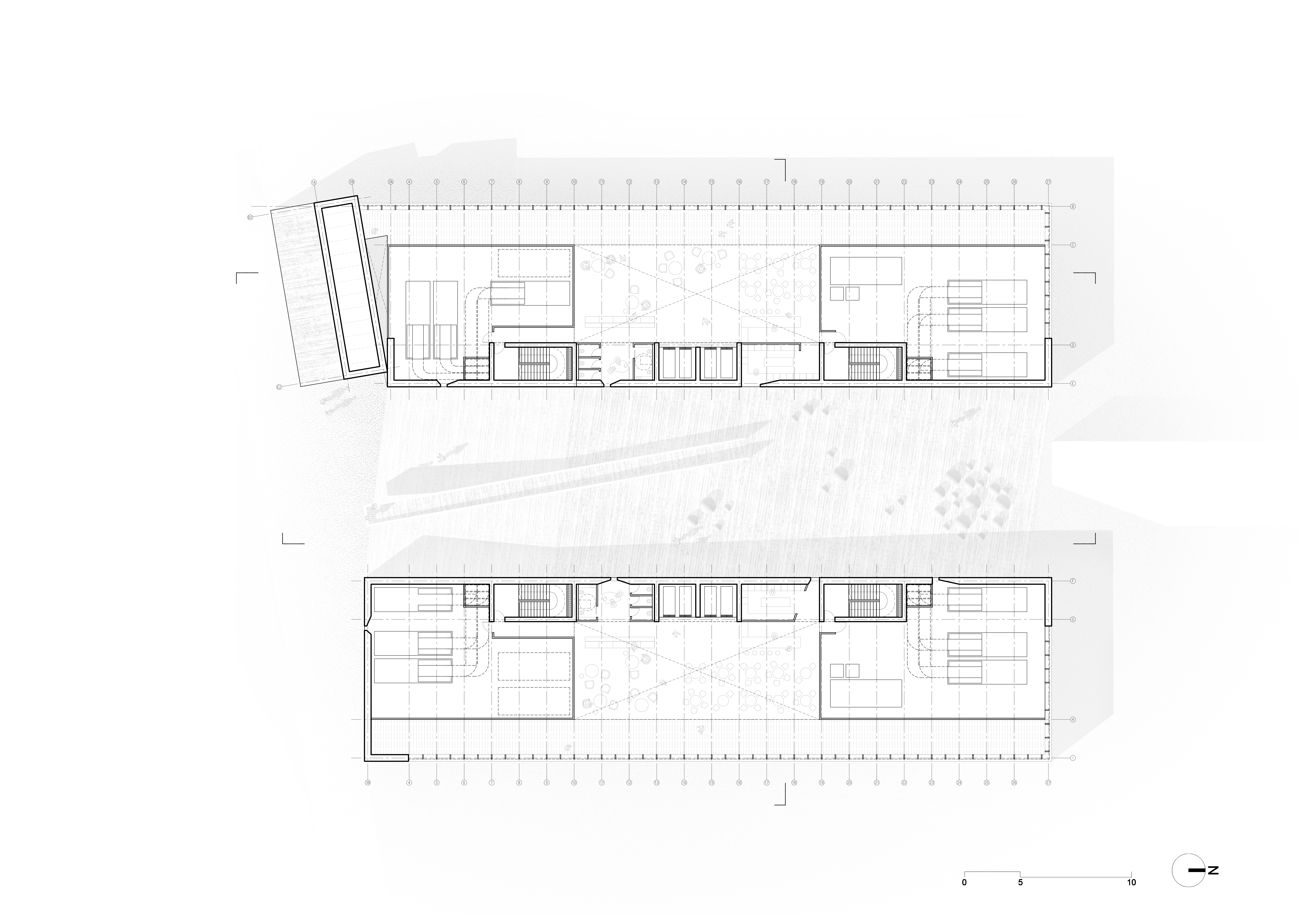
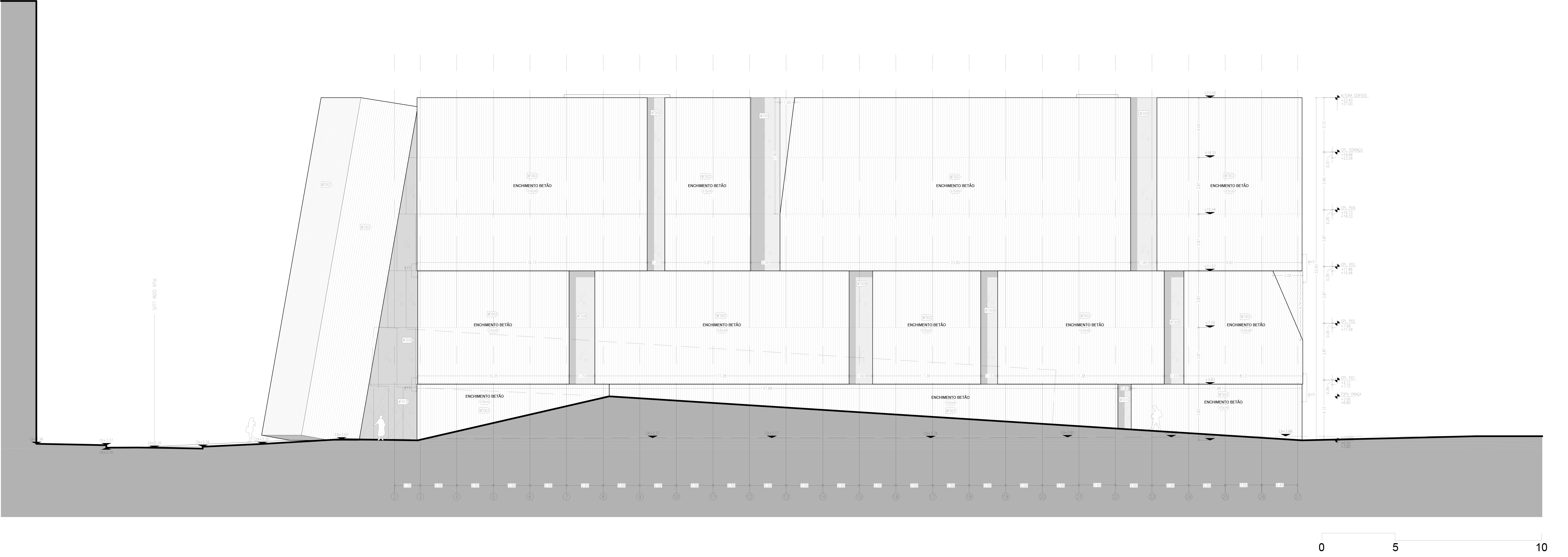
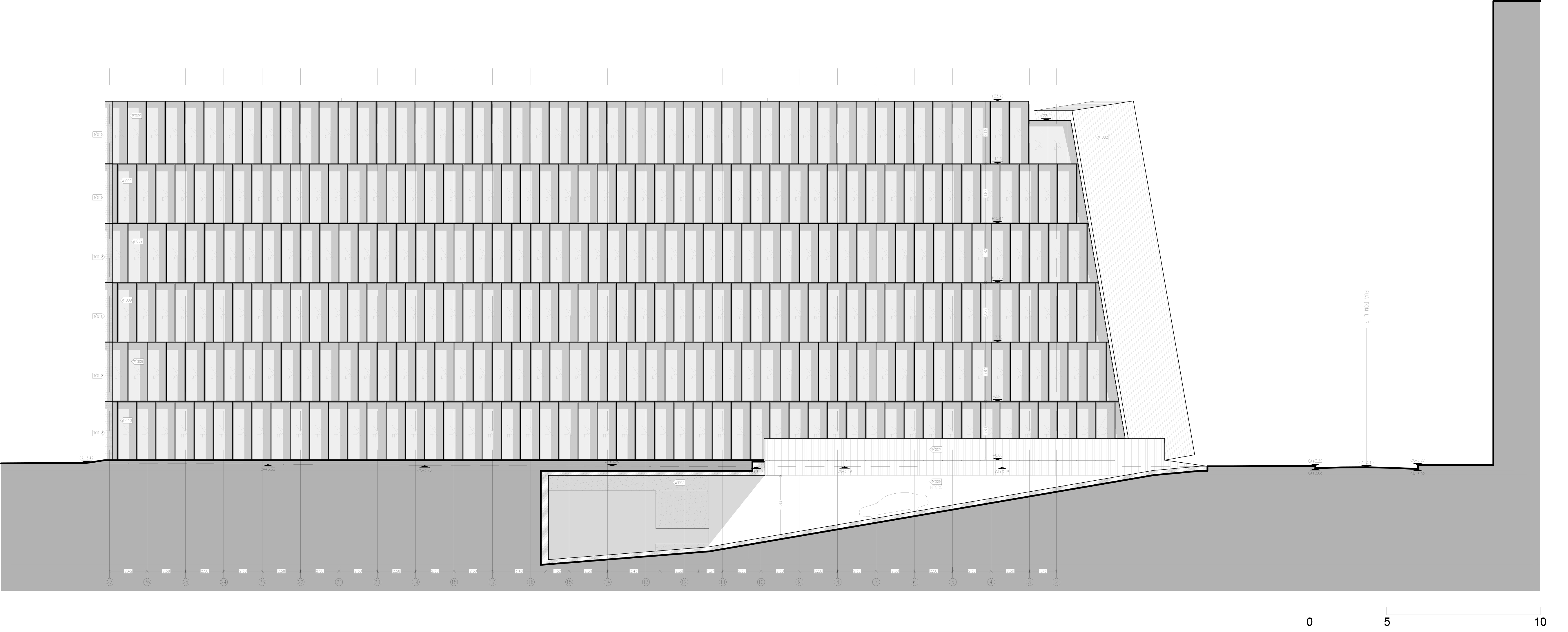
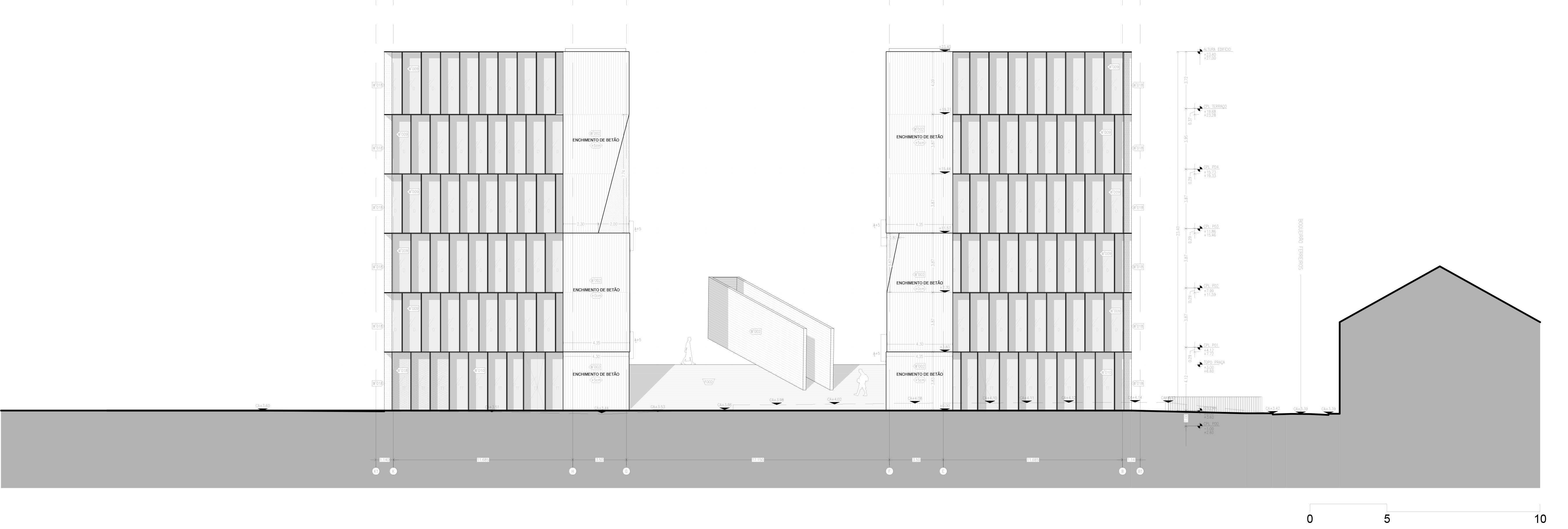
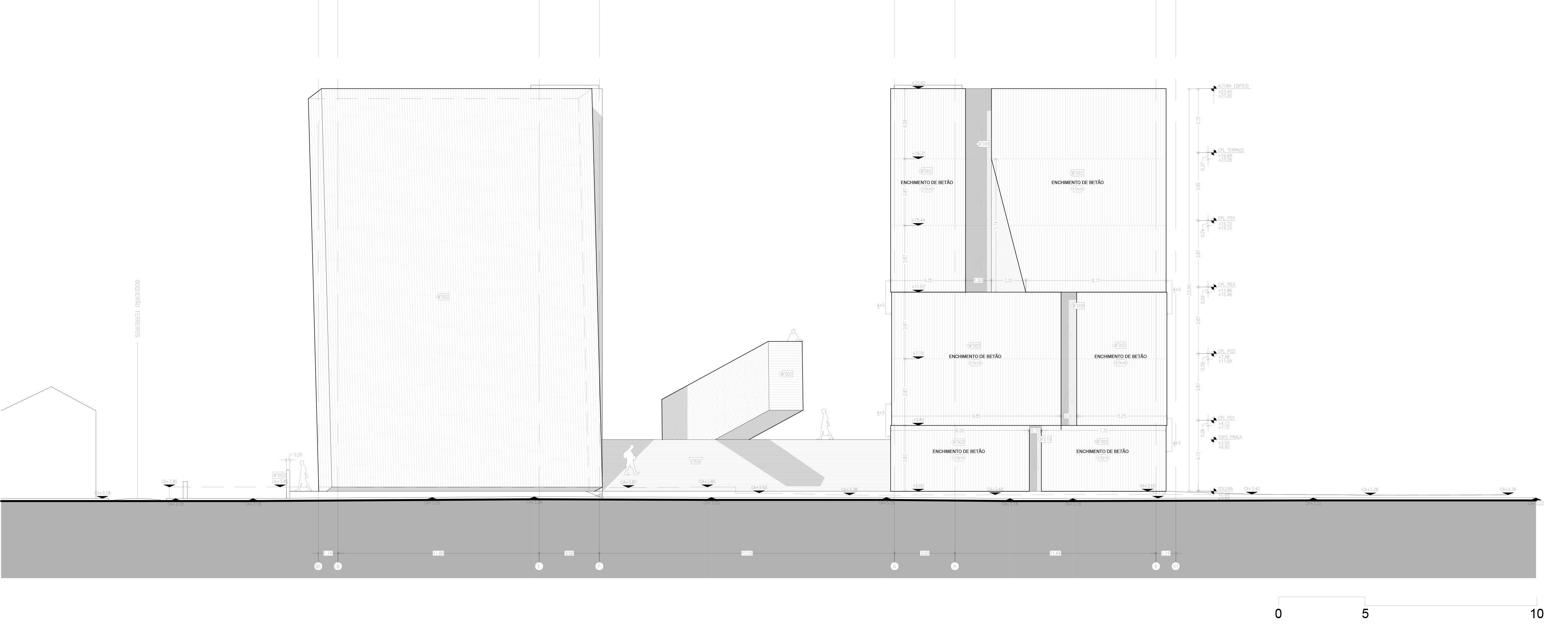
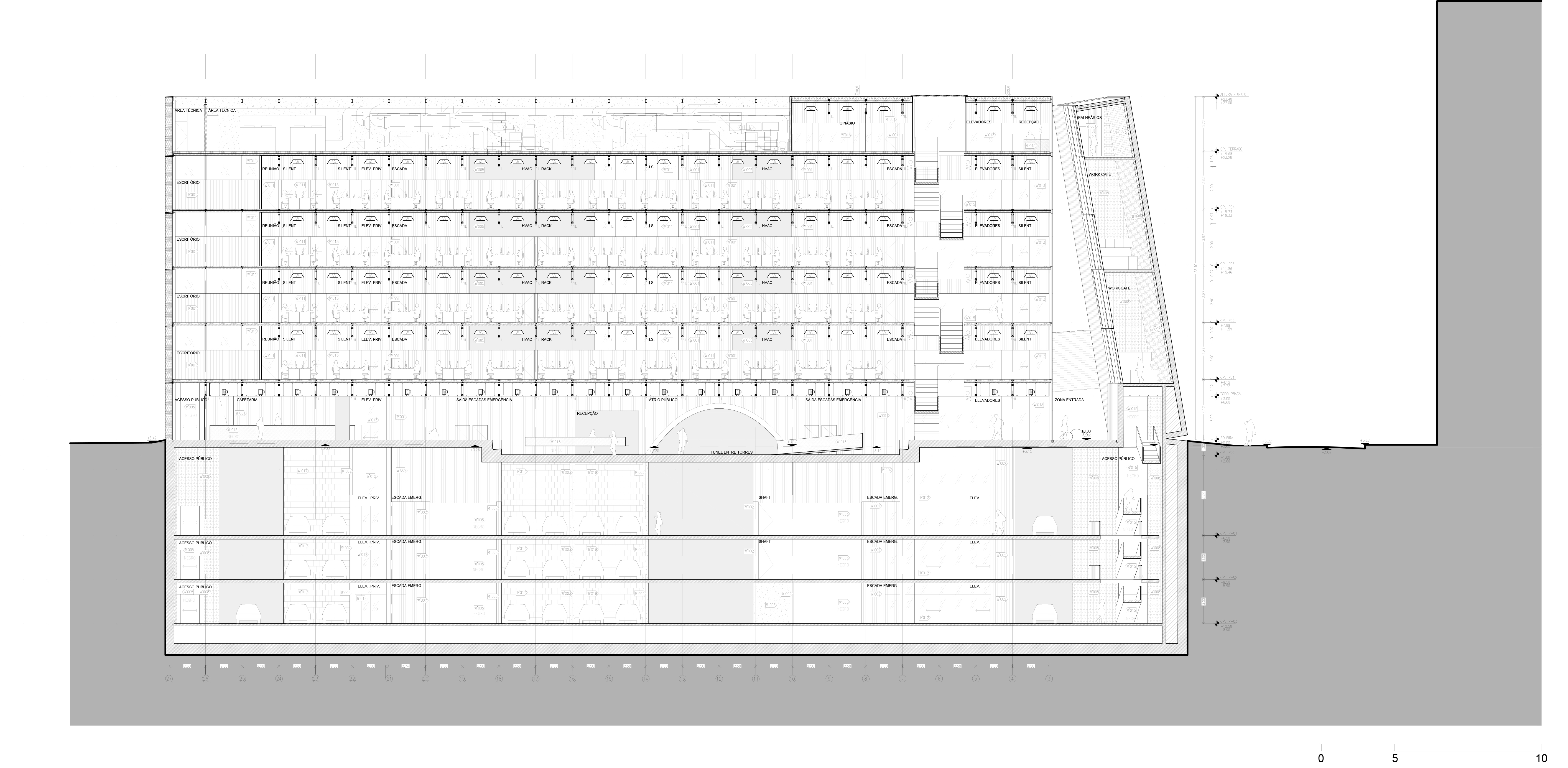
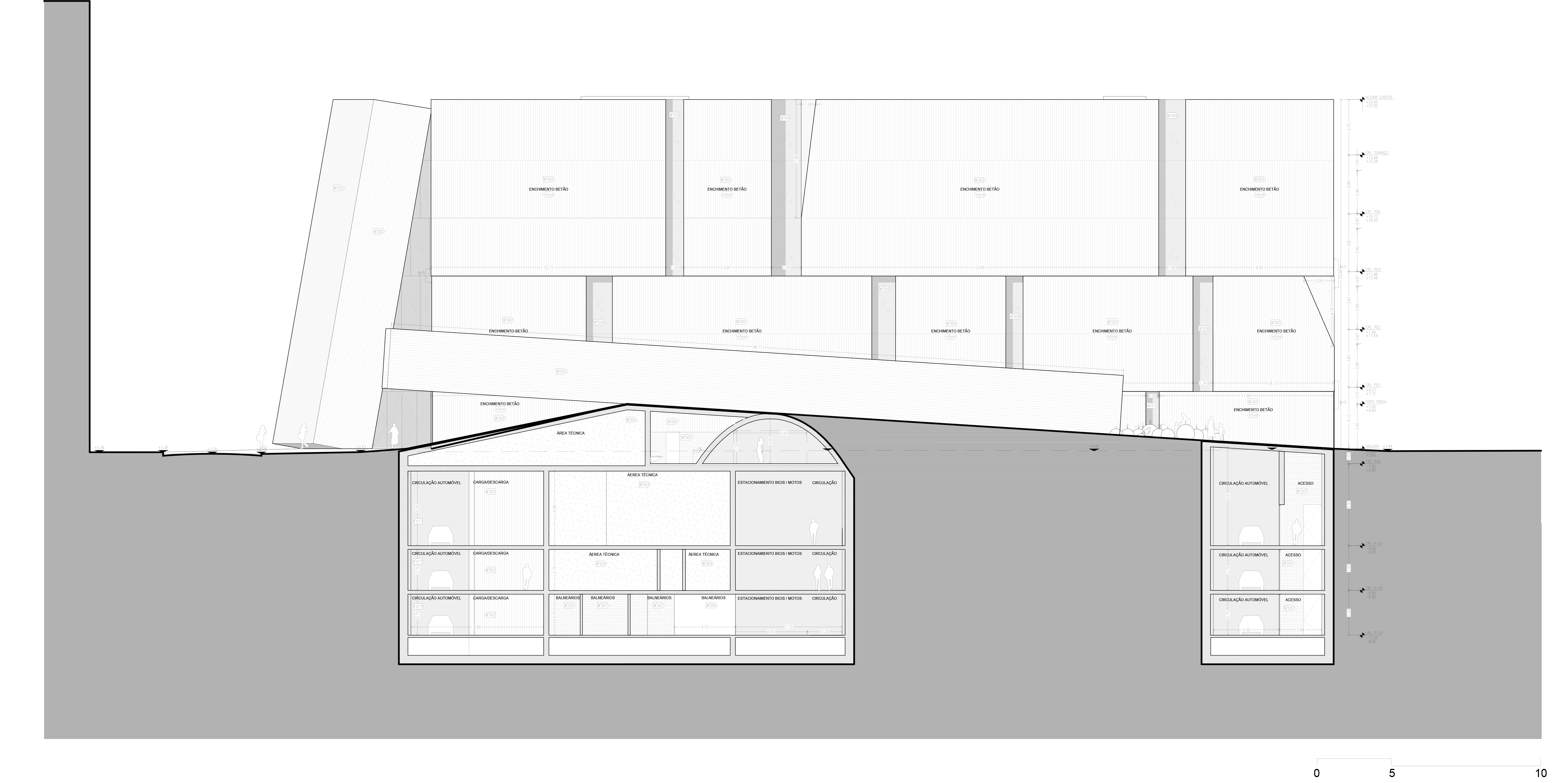

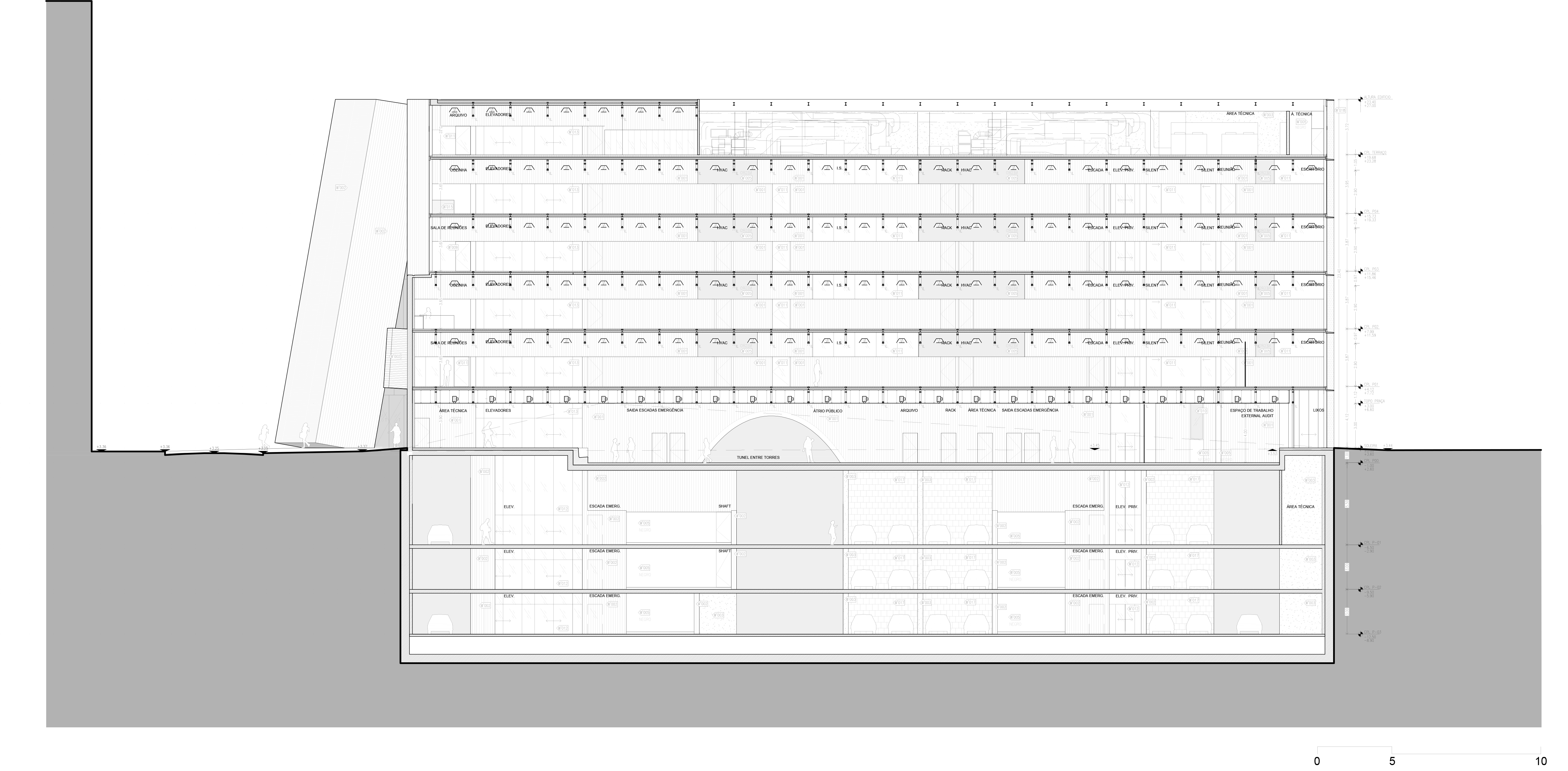
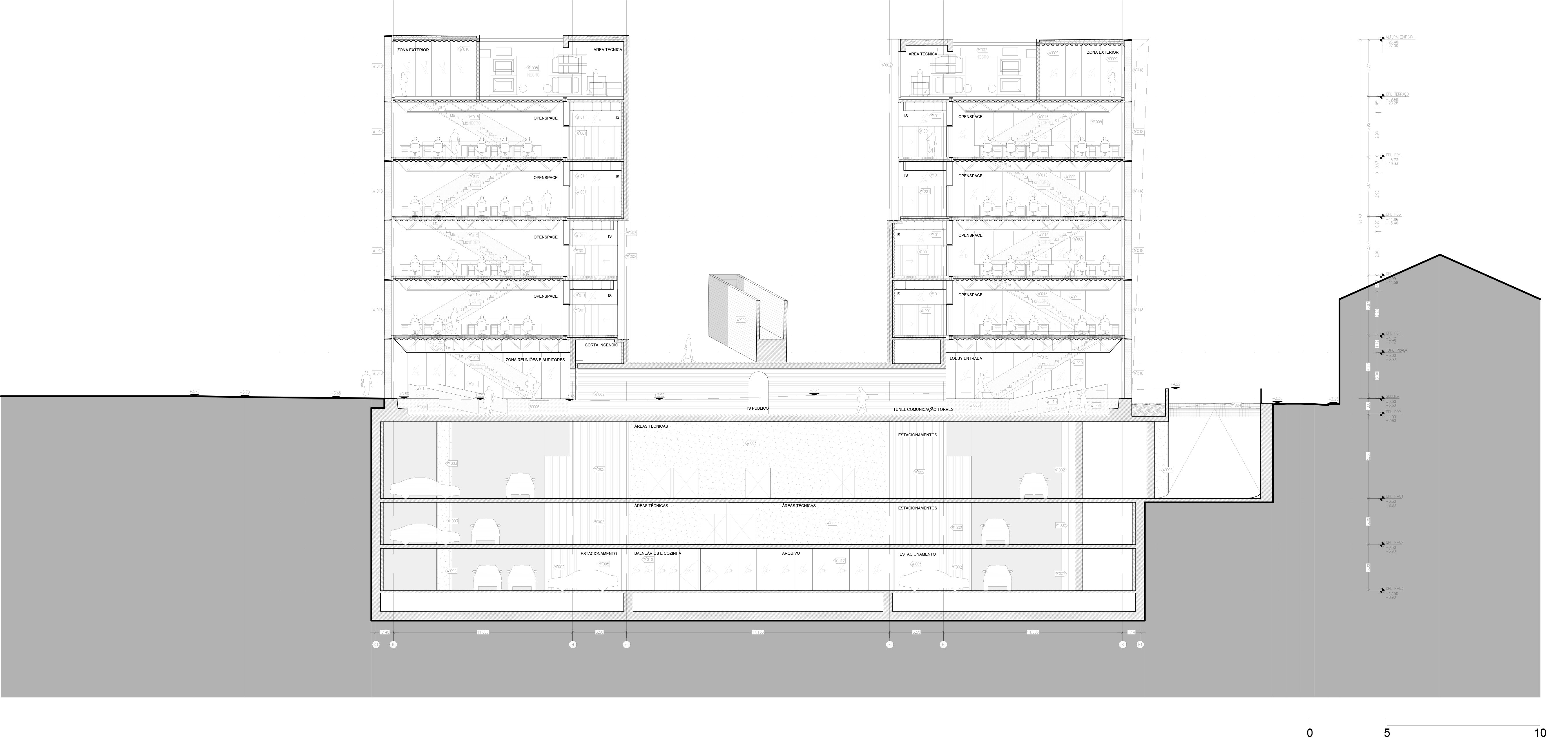
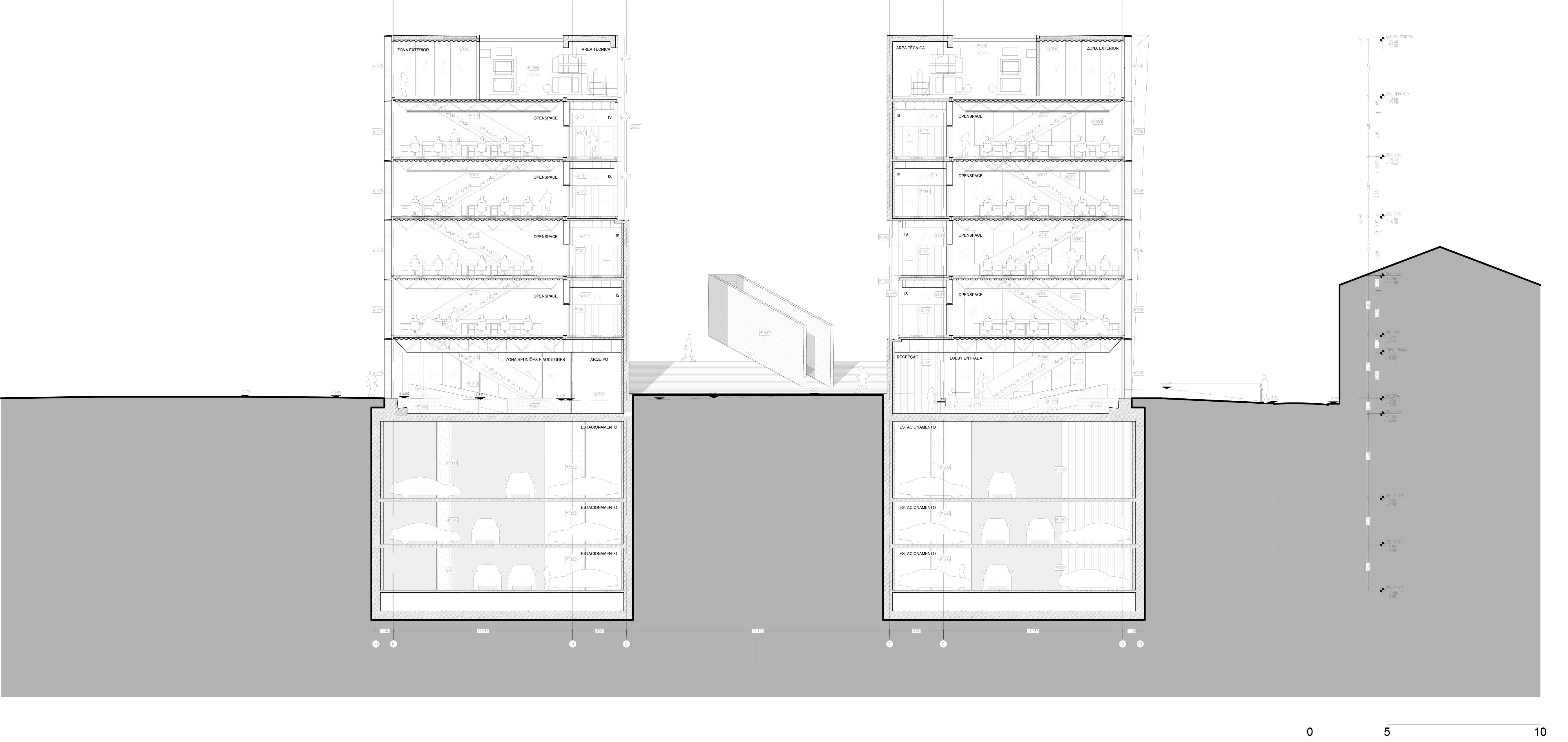
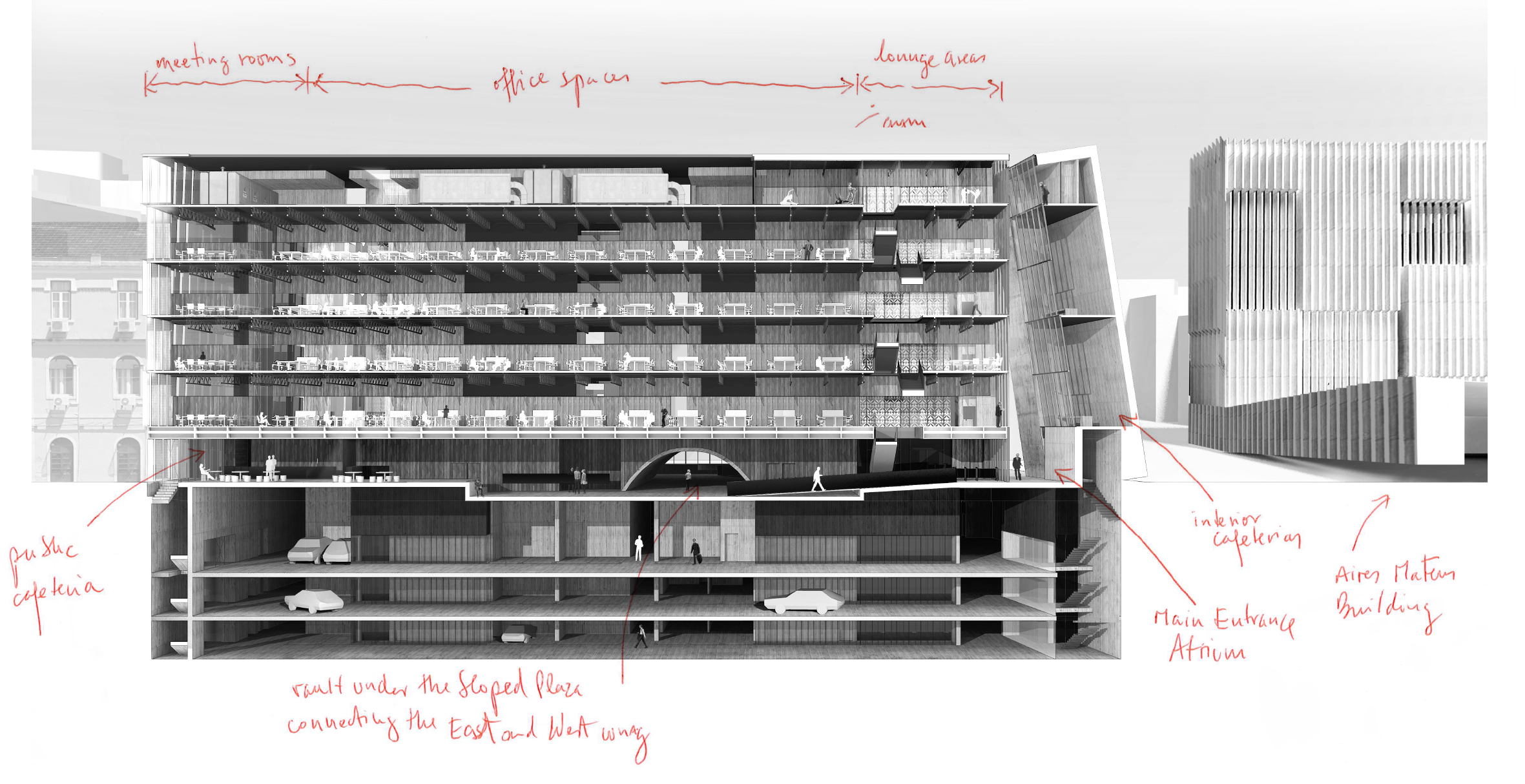
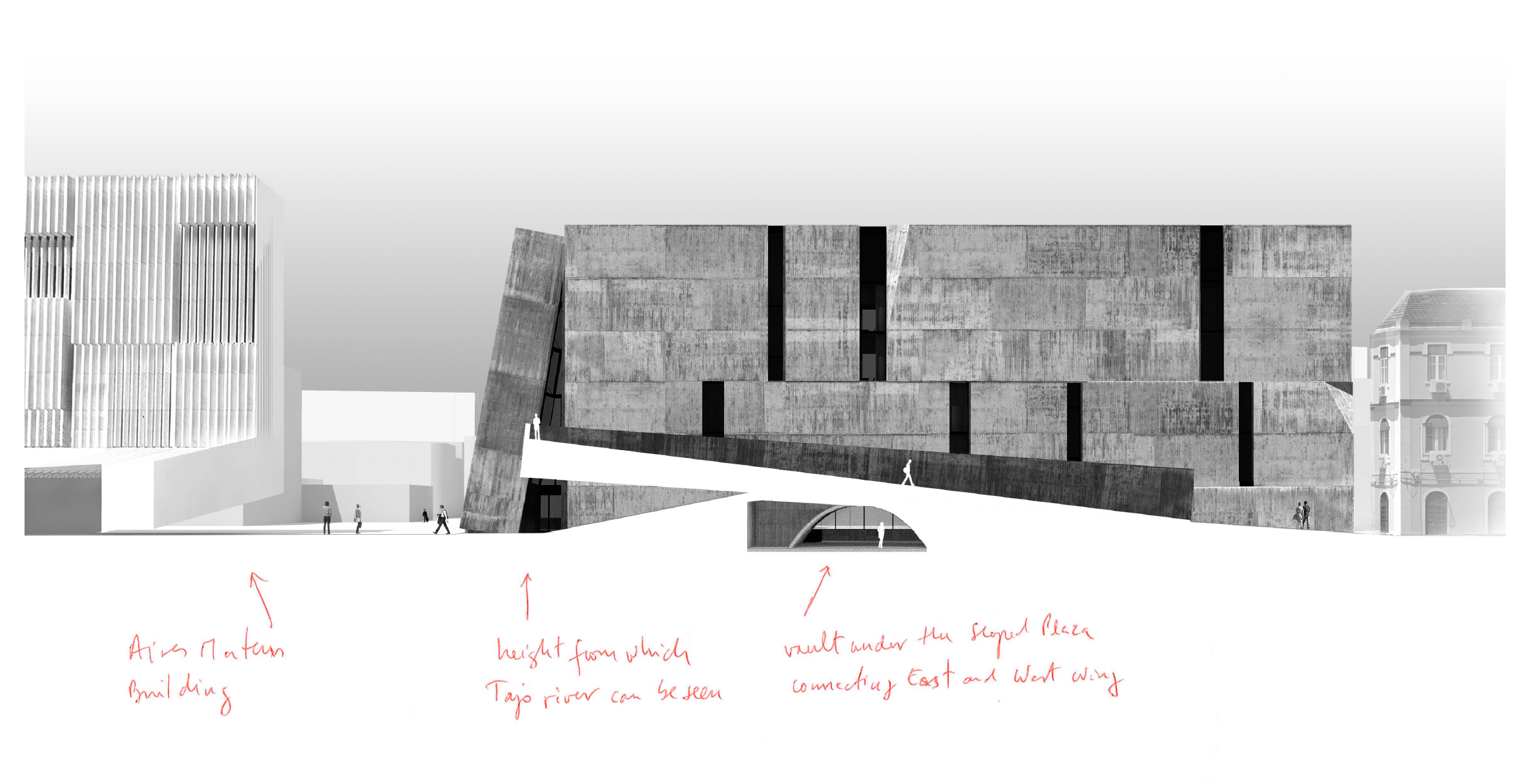
完整项目信息
Architects: ELEMENTAL
Interior Design: ELEMENTAL
Team: Alejandro Aravena, Juan Cerda, Victor Oddó, Gonzalo Arteaga, Diego Torres, Tomás Palmares, Clémence Pybaro, Suyin Chia, Mara Cruz, Federica Tebaldi, Eva Ibañez, Marta Ochoa, Simone Pio Scarano, André Barros, Valentina Rojas.
Local Architect: Carrilho da Graça arquitectos Lda - João Luís Carrilho da Graça, João Marques, Francisco Freire, Nuno Pinto, Marta Martins.
Engineering: AFA Consult - Rui Furtado, Pedro Pereira, Marco Carvalho, Mauro Monteiro, Paulo Silva, Raul Serafim, Maria da Luz Santiago, Rodrigo Castro.
Structural engineering: AFA Consult
Electrical engineering: AFA Consult
Mechanical engineering: AFA Consult
Energy efficiency: AFA Consult
Plumbing Engineering: AFA Consult
Construction Supervision: Pengest - Rui José, Sonia Vieira.
Client: EDP - Energias de Portugal
Site area: 3880 m2
Total floor area: 10950 m2 (building area) 13490 m2 (parking area)
Design phase: 2017-2018
Construction phase: 2020-2024
Materials: reinforced concrete, wood, steel, glass-fiber, glass
本文英文原文及图片由ELEMENTAL授权有方发布,编译版权归有方空间所有。欢迎转发,禁止以有方编辑版本转载。
上一篇:直播预约|海外设计竞赛观察:如何寻找适合你的国际竞赛?
下一篇:现代建筑设计大厦北楼整体修缮项目|上海院